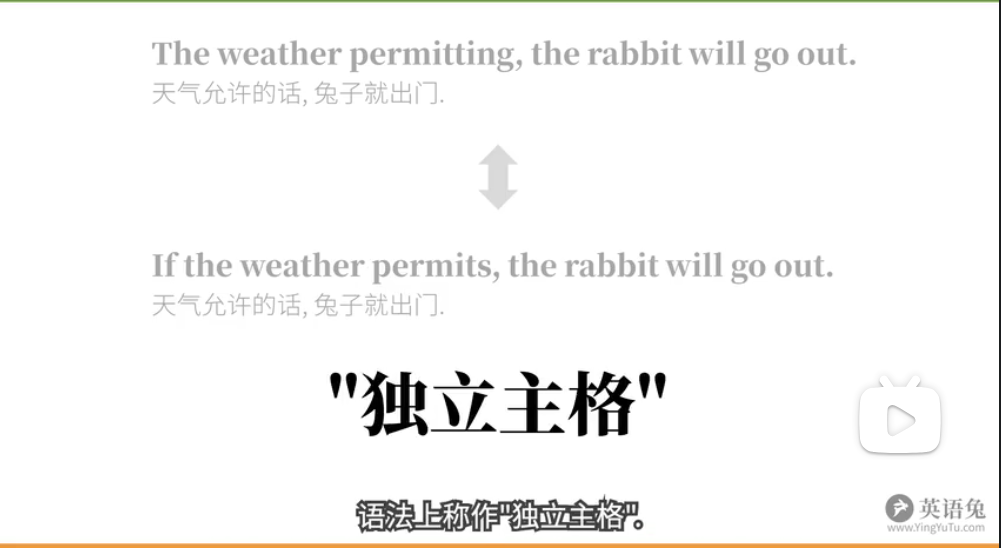动词
英语语法的核心就是动词,动词能够串起几乎所有语法概念。
动词分类
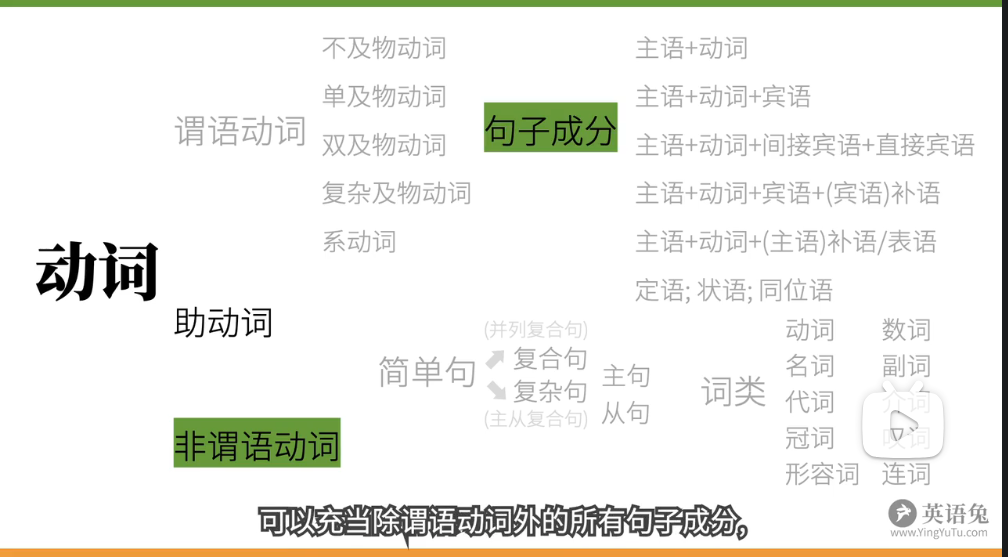

完全及物动词和不完全及物动词:是否需要宾语补足语
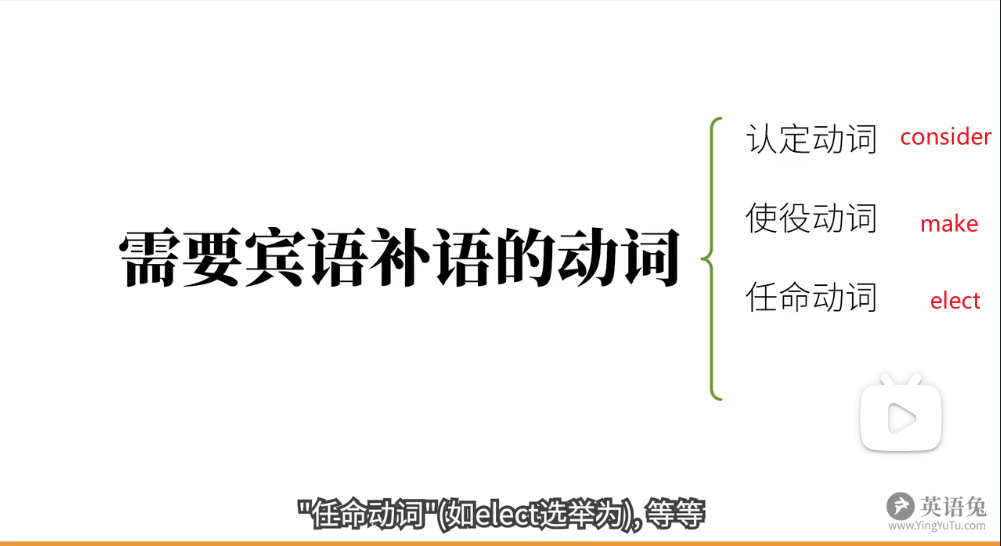
谓语动词
谓语动词有三大本领:表示动作时间、表示动作状态、表示动作假设情感等。
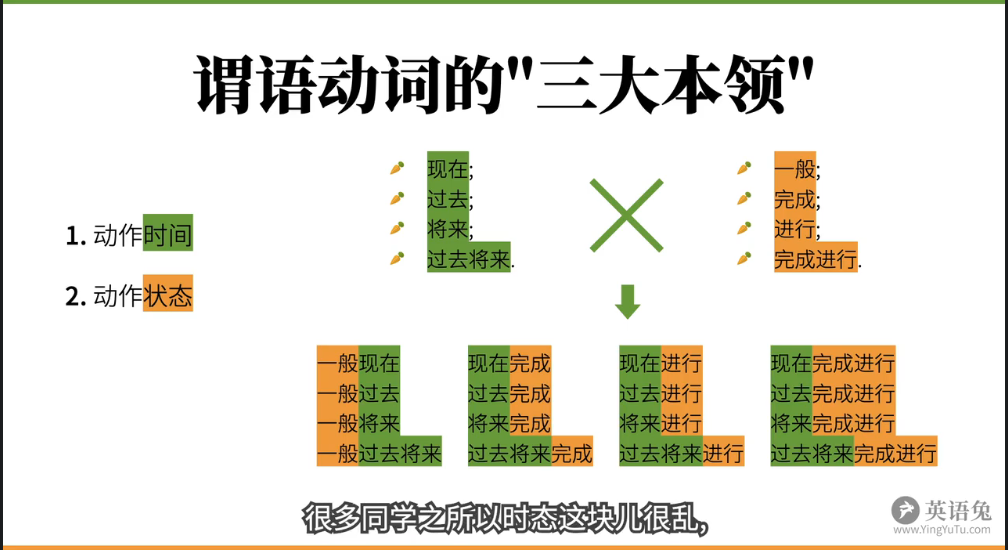
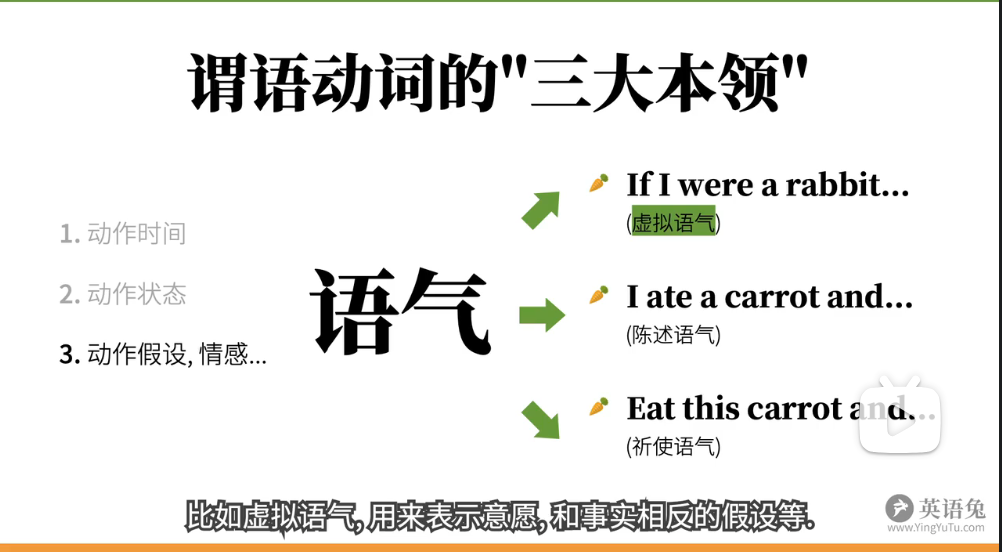
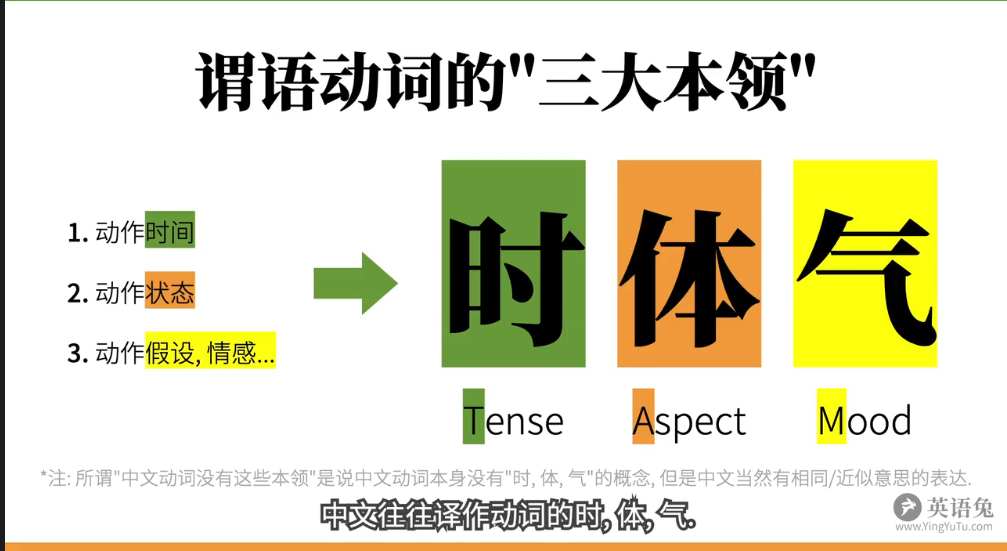
助动词Auxiliary Verbs&情态动词Modal Verbs
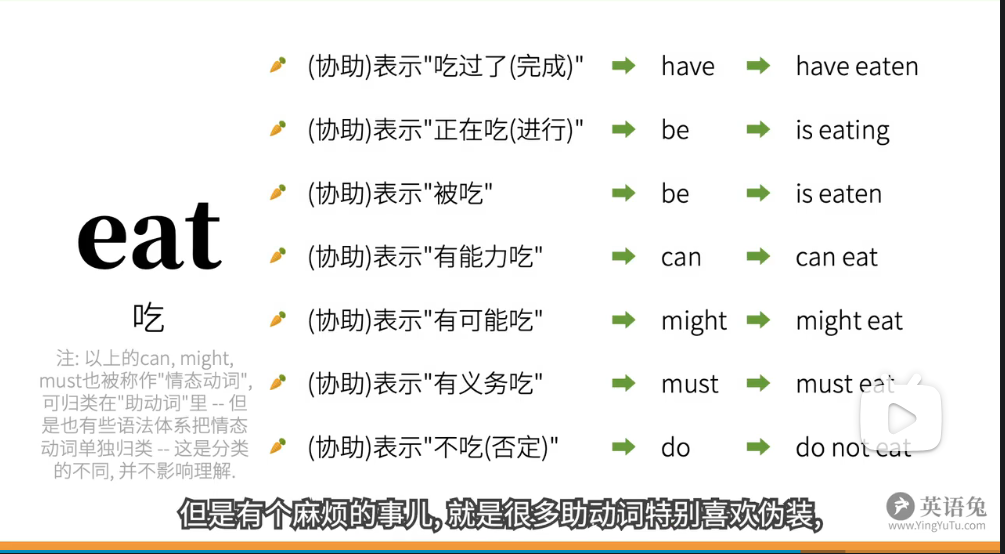
这些词语作为助动词(没有实义,只是帮助谓语动词)和实义动词意义不同,这点要注意区分。
be:存在
have:有,吃
can:易拉罐
might:能力
must:发霉的
do:做某事
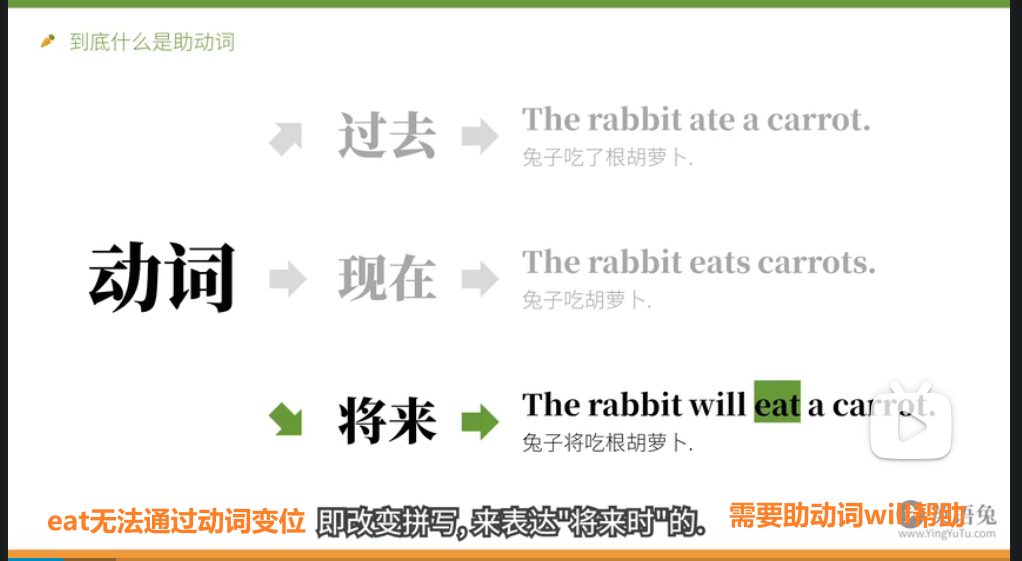

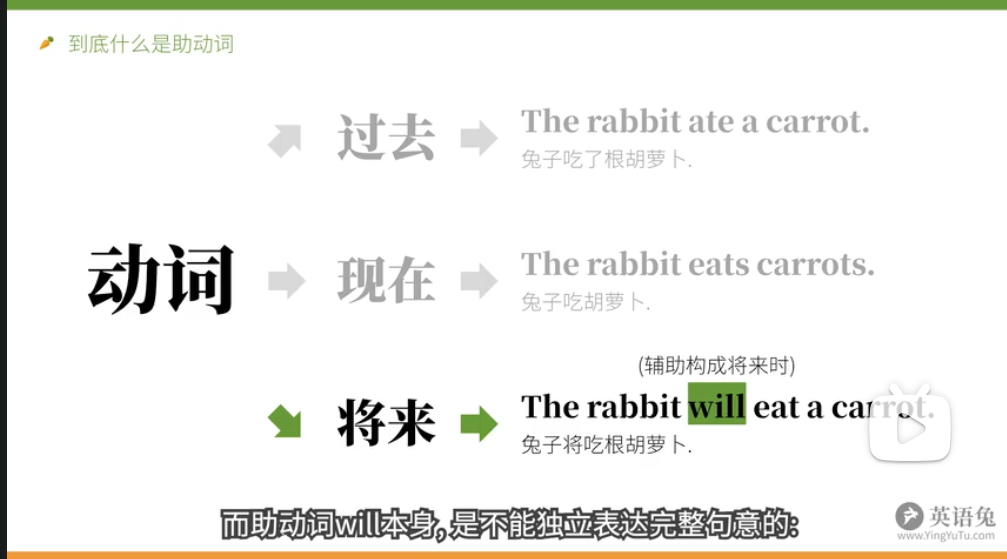

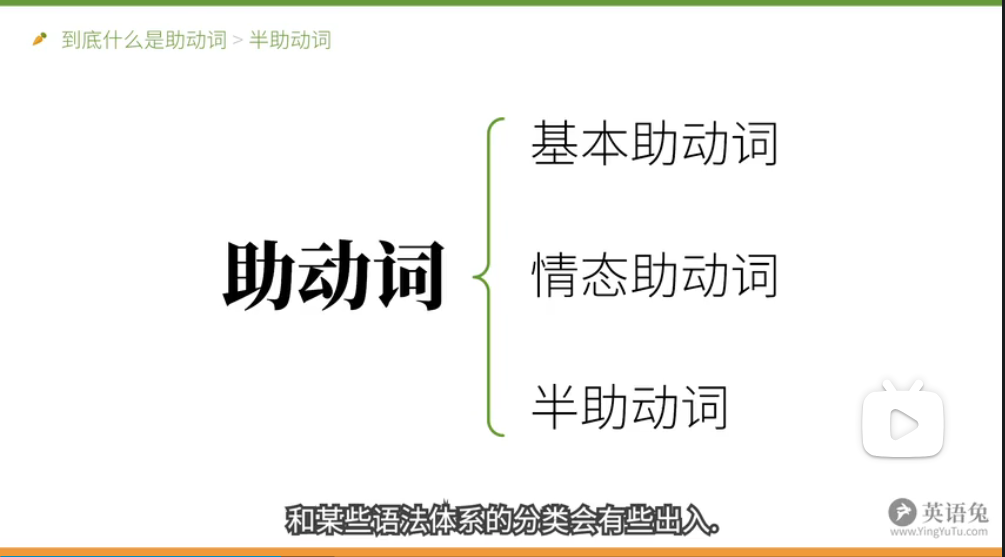

The rabbit can kill a wolf.
这里不能写成:The rabbit can a wolf.
根据功能,can这类的情态动词还是助动词的一种。
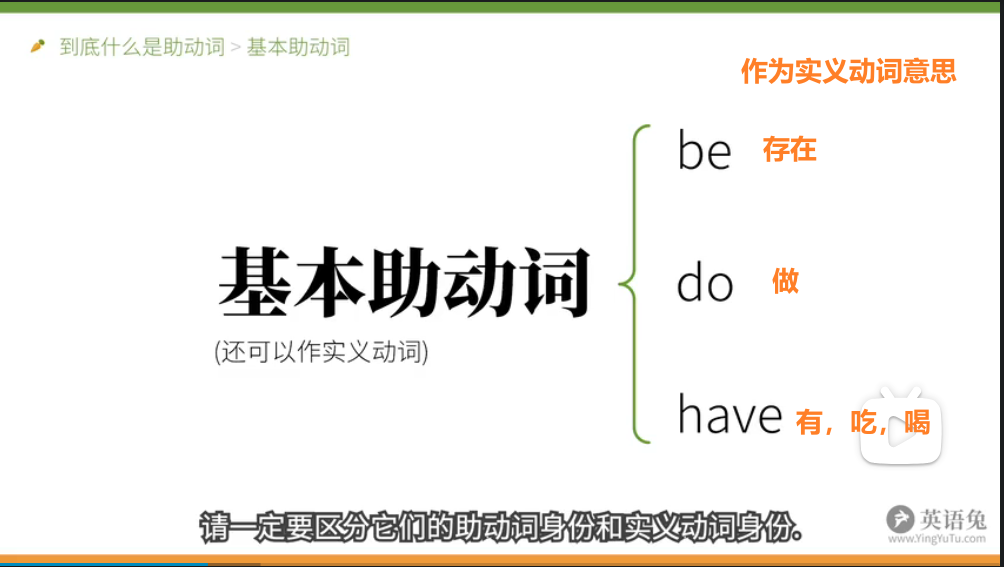
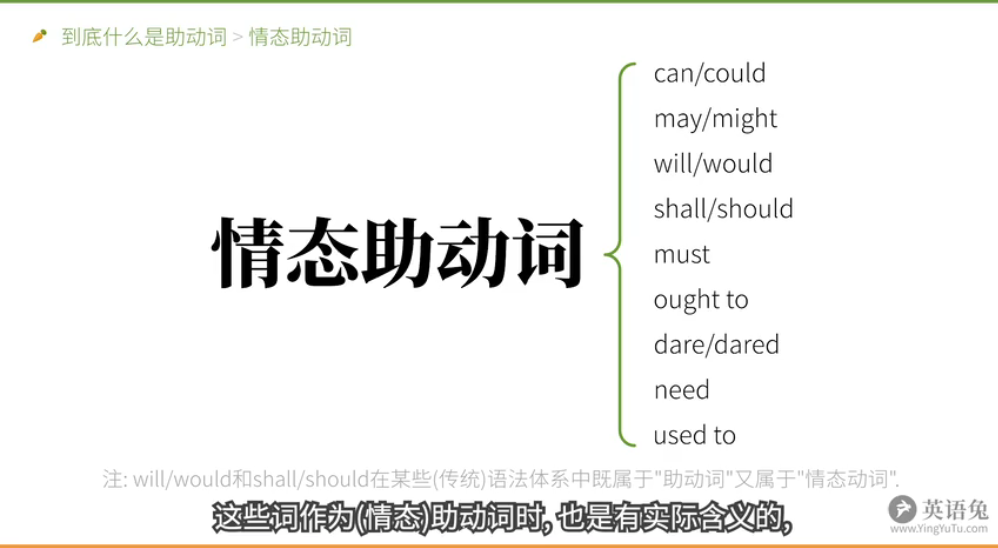
但很多“情态助动词”不能充当谓语动词。

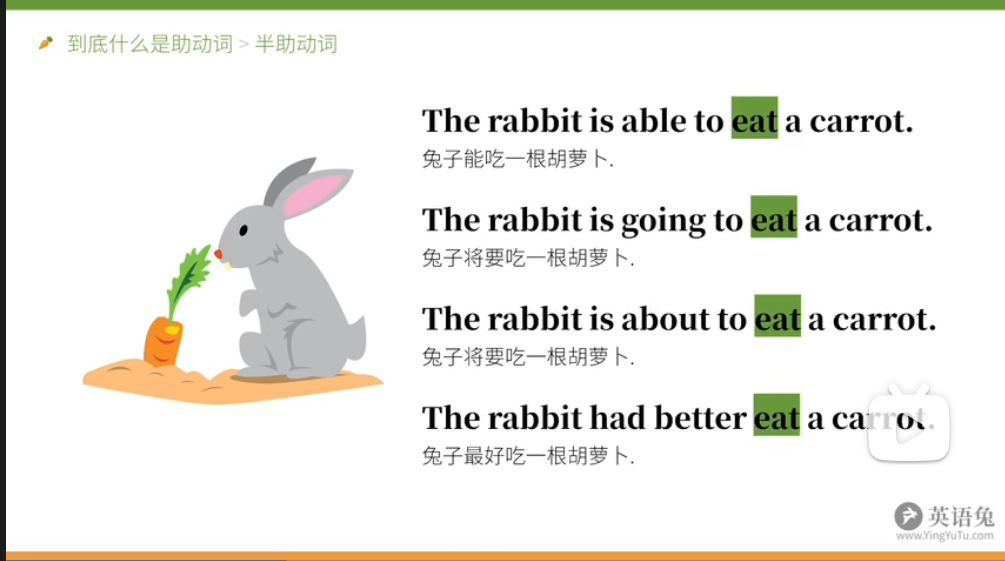
基本助动词be
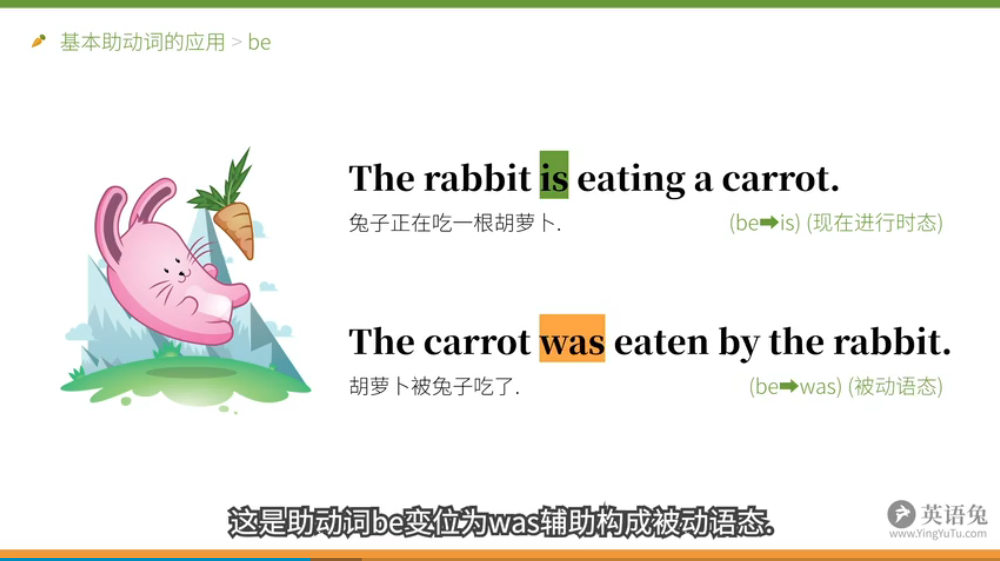
基本助动词have
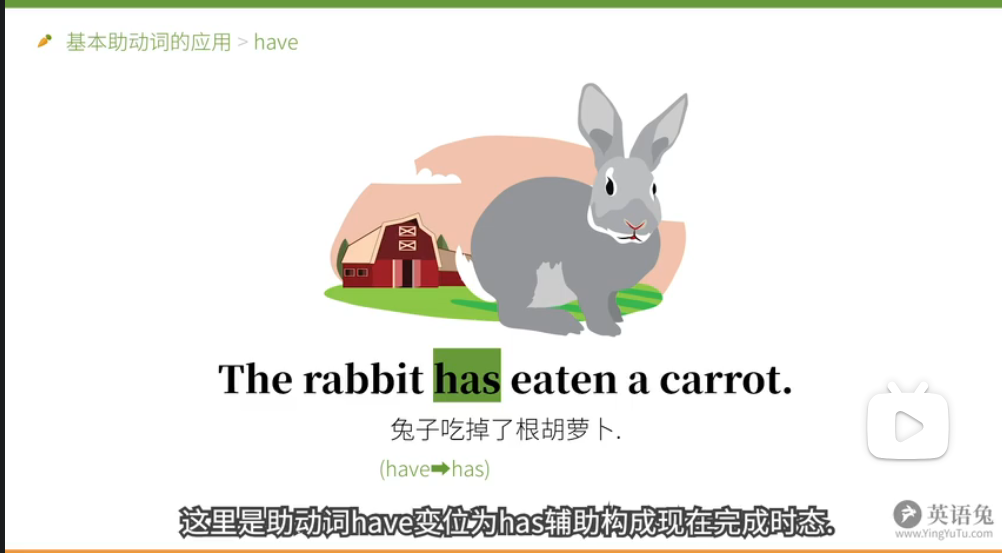
基本助动词do
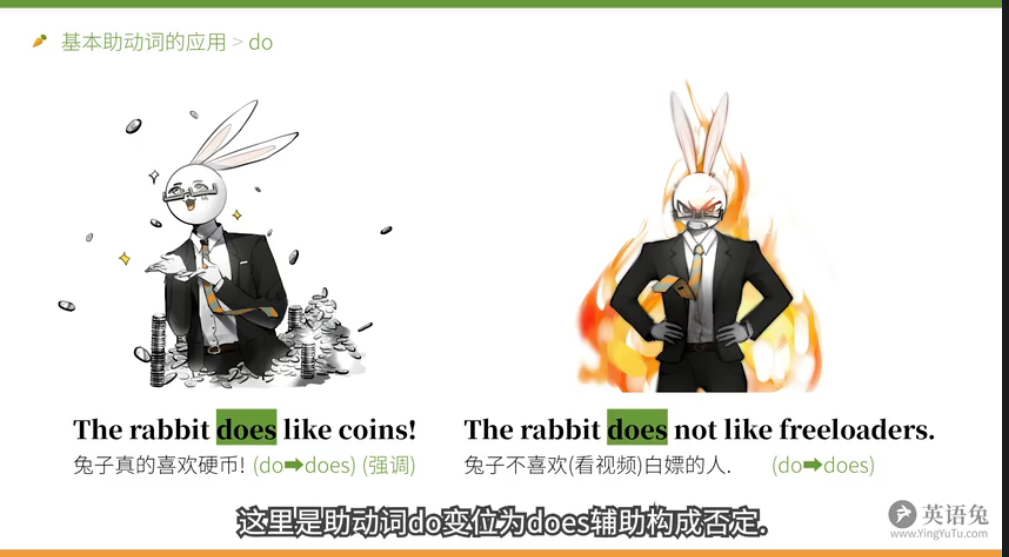
情态助动词 can/could
1.表示有能力做某事
I can kill a wolf.
I could kill a wolf last year.
2.表能力或许可
Can/Could I borrow your book?
Yes, of course.
3.表达可能性
Anything can happen.

The rabbit could have gone home earlier, but he didn't finish work on time.

情态助动词 may/might
1.表请求或许可
May/Might I borrow your book?
Yes, of course.
2.表达可能性,译为可能,也许

The rabbit isn't here. He may be at home.
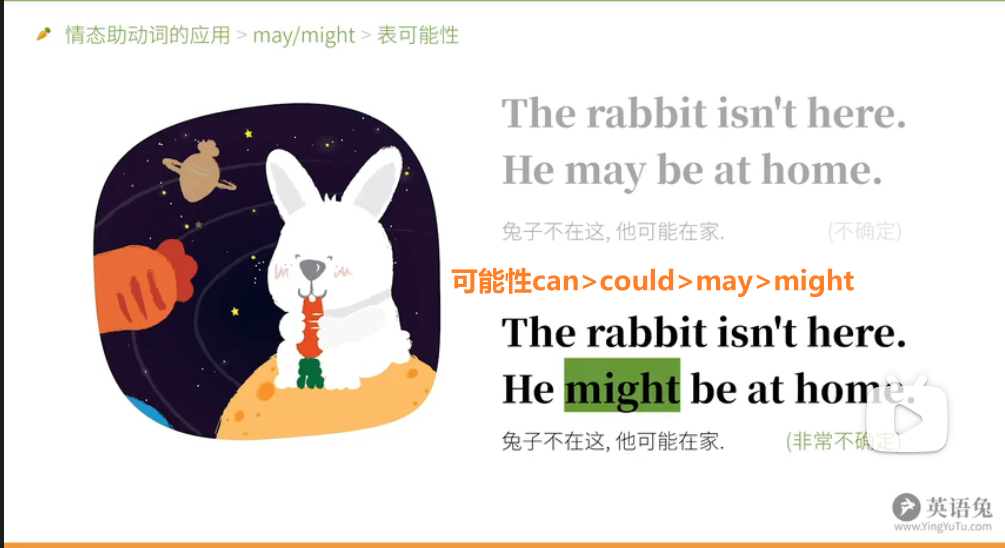
3.May可以表示祝愿,放在句首。
May you succeed! = Wish you success!
情态助动词 must
1.表示义务上必须
You must finish your homework first!
2.表禁止
You must's smoke here!
Must I give you a thumbs-up?
No, you need not give me a thumbs-up.
No, you don't have to give me a thumbs-up.
3.表推测,意为肯定、一定
The light is on. The rabbit must be at home.(肯定在家)
The light isn't on. The rabbit can't be at home.(不可能在家)
情态助动词 will/would
1.构成将来时
The rabbit will eat a carrot.(将来)
The rabbit would eat a carrot. (过去将来,这里其实也能表示推测,具体意思要看语境。)
2.表示请求或建议
Will you lend me that book?
Yes, of course.
Would you please lend me that book?
3.表推测,假设
Ask him.He will/would know.

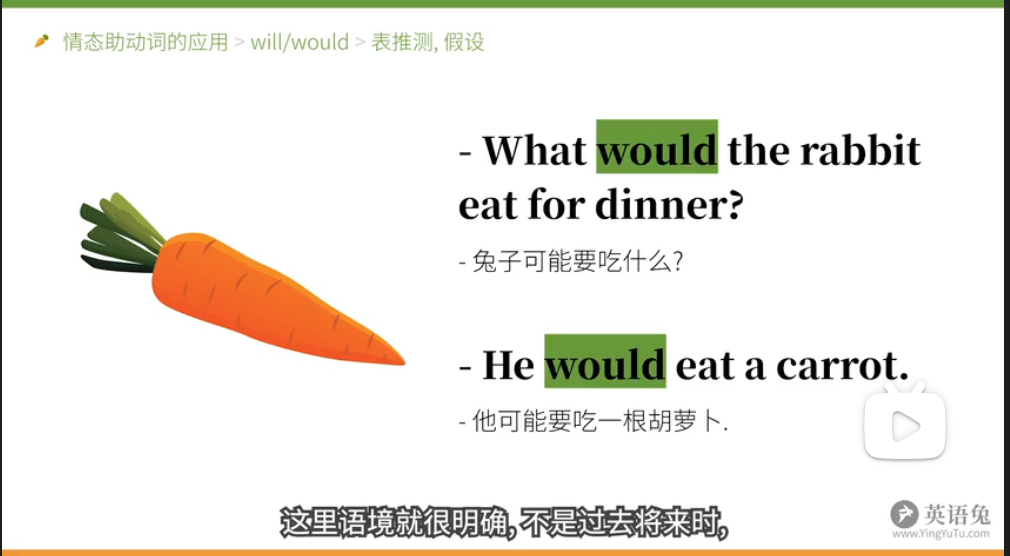
情态助动词 shall/should
1.构成将来时
I shall/will be there at 9AM.
2.表请求或征求意见
Shall we meet at 9AM?
3.表警告、命令
You shall not pass!(你不许通过!)
情态助动词 should
1.表应当
We should treat the rabbit well.
2.表示有一定根据的推测
It should rain tomorrow.
3.表竟然
It's surprising that he should be late!

4.构成虚拟语气
If it should rain tomorrow, I wouldn't go.


情态助动词ought to
表应当
We ought to treat the rabbit well.
比should语气更强一些。
情态助动词need
need作实义动词是表示需要,例如I need your coins.

作为情态动词时意思也是需要
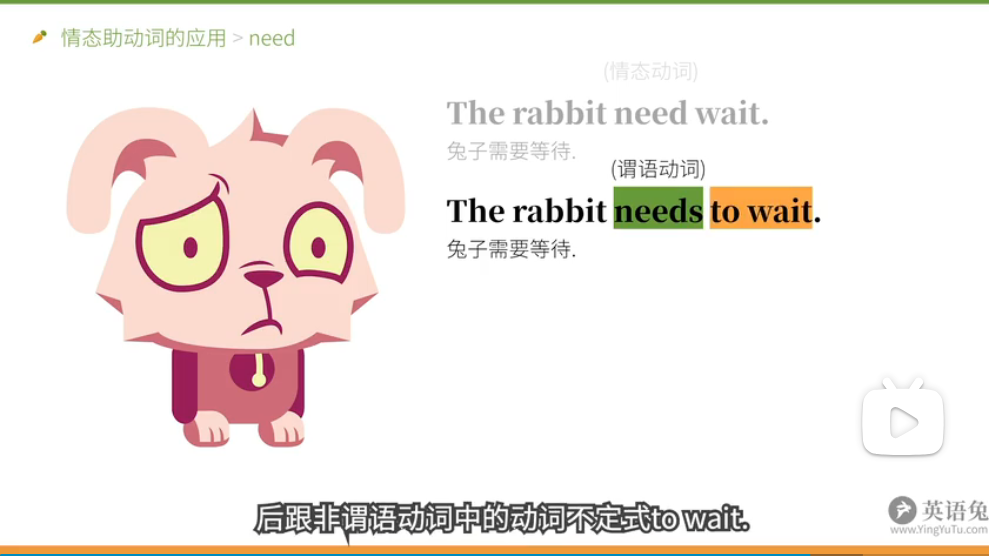
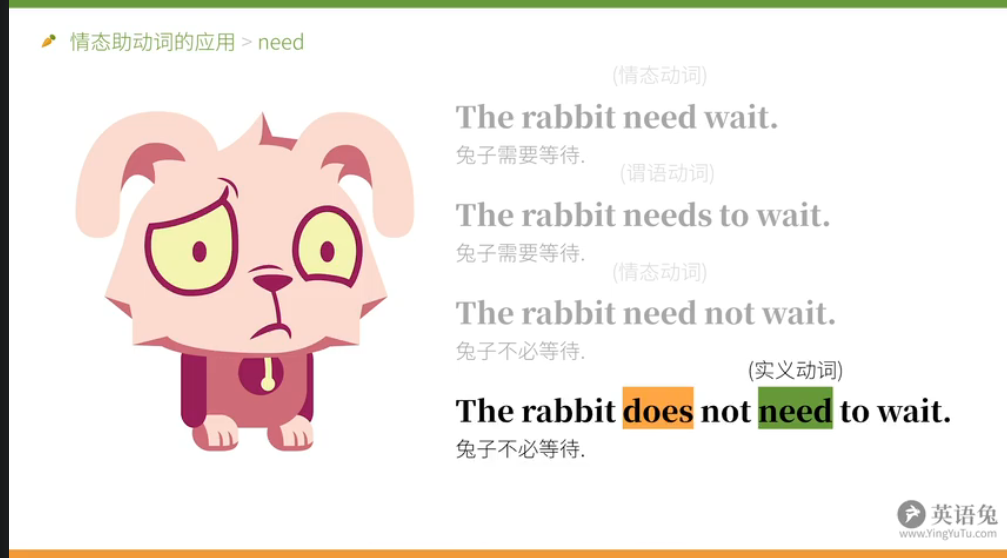
情态助动词dare

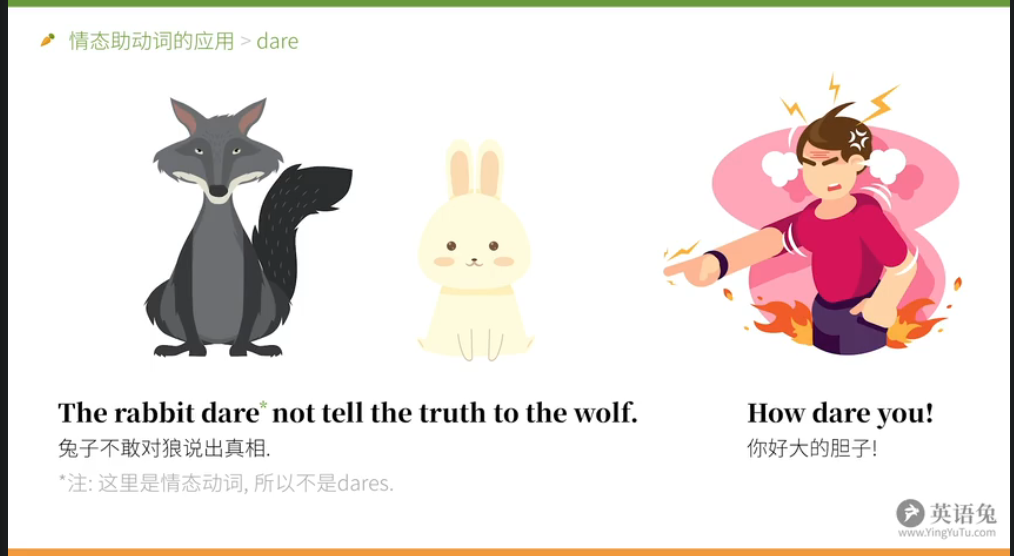
情态助动词used to
表示过去的动作,尤其是重复的动作,强调与现在的对比
The rabbit used to eat apples. Now he only eats carrots.
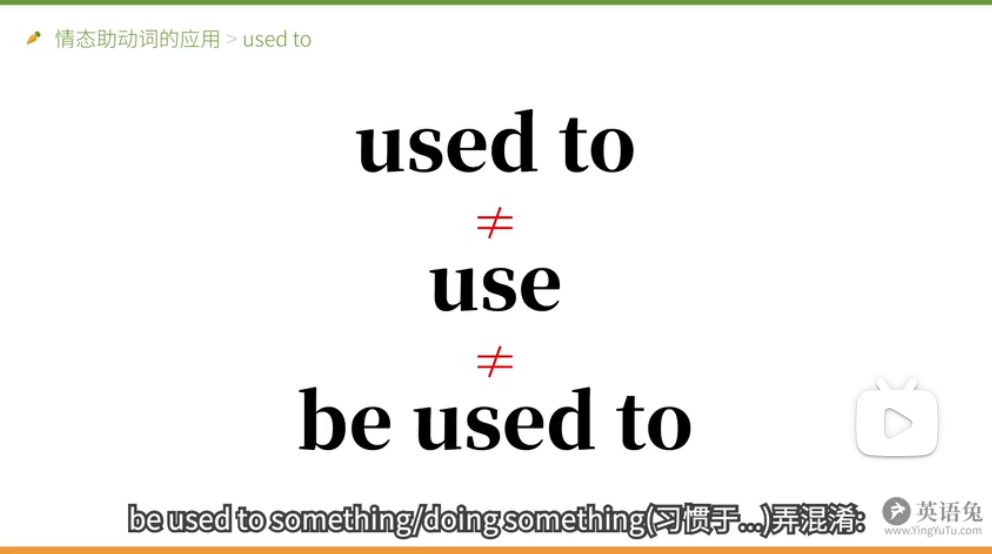

半助动词be able to

表示将来的能力,这和can/could不同
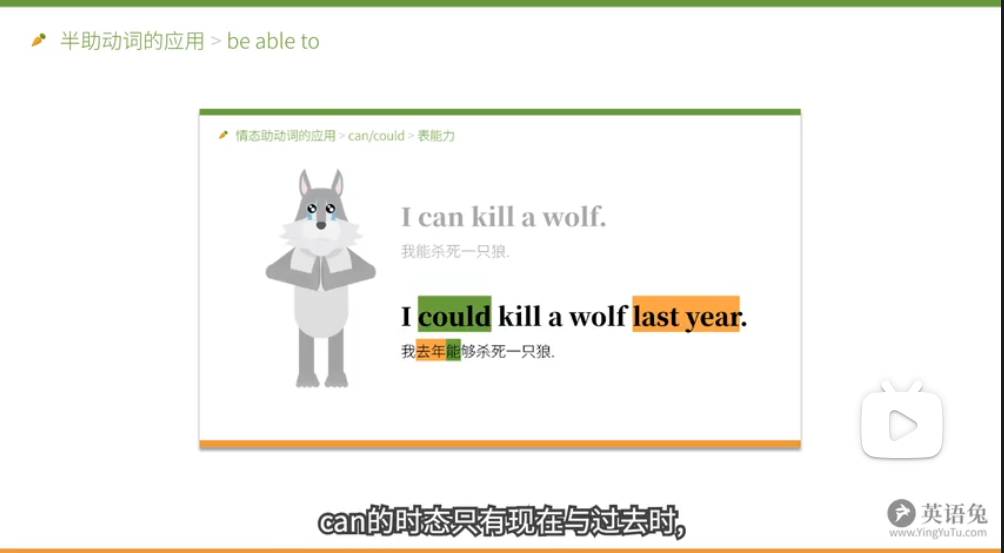

半助动词be to/be going to/be about to

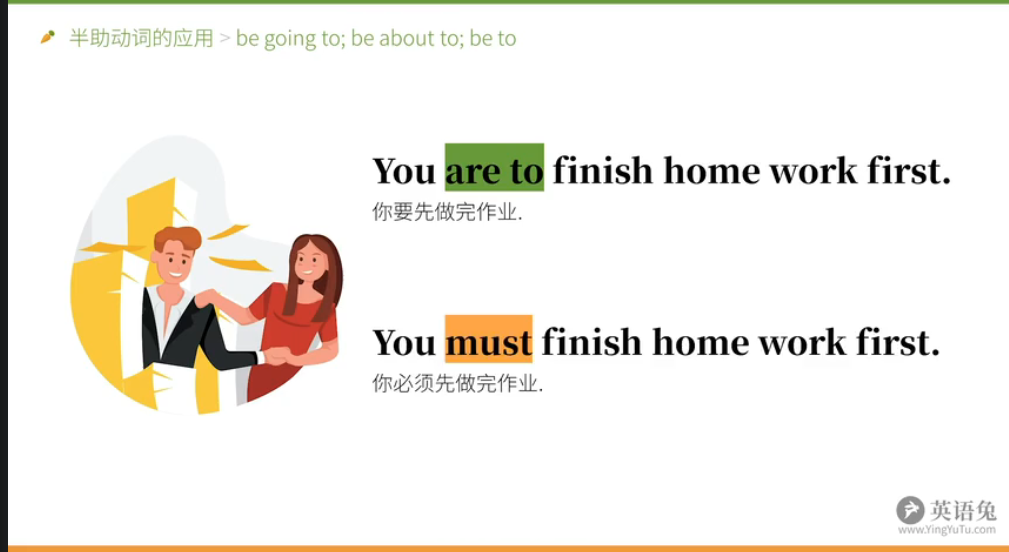
be to也可以表示命中注定
I think they're to fall in love with each other.(注定会相爱)
半助动词had better

You had better follow my orders!
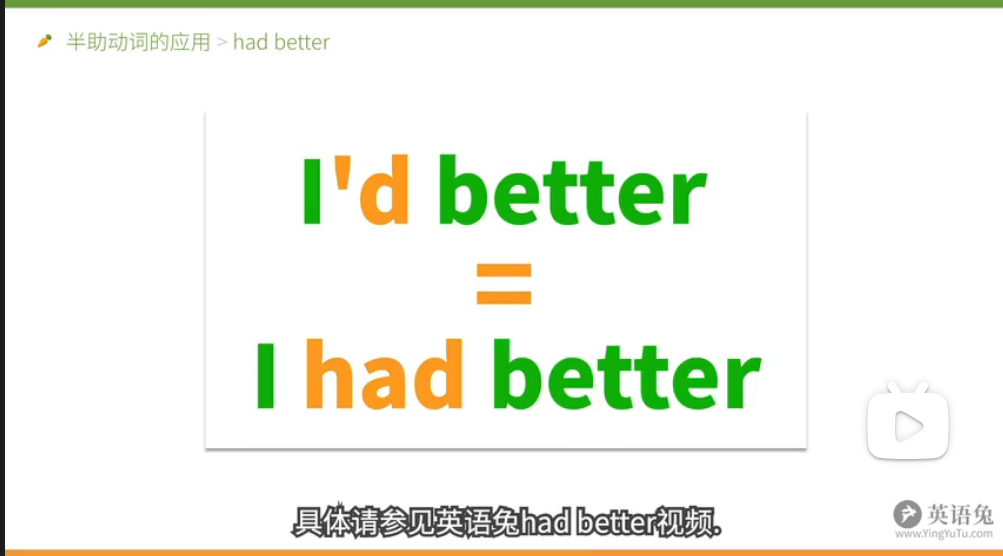
系动词

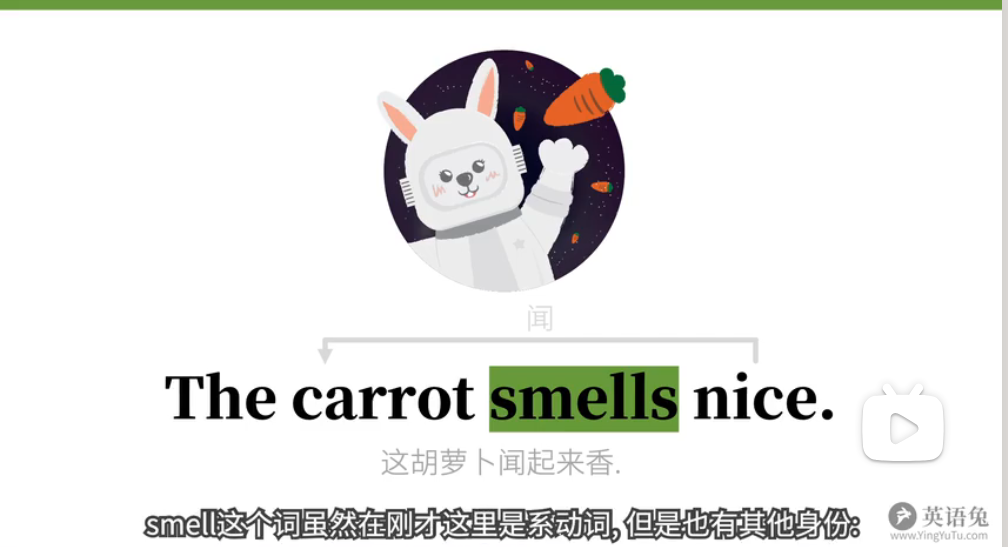
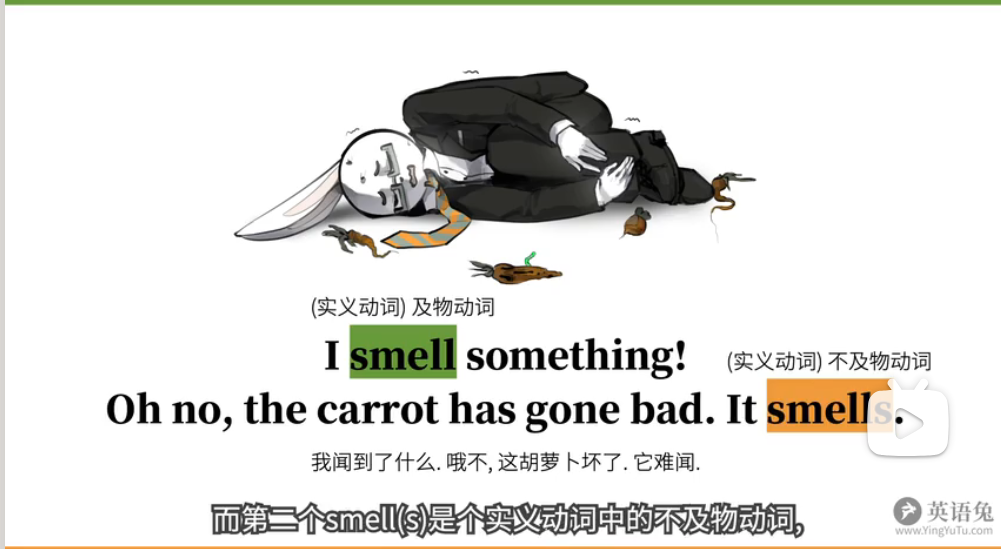
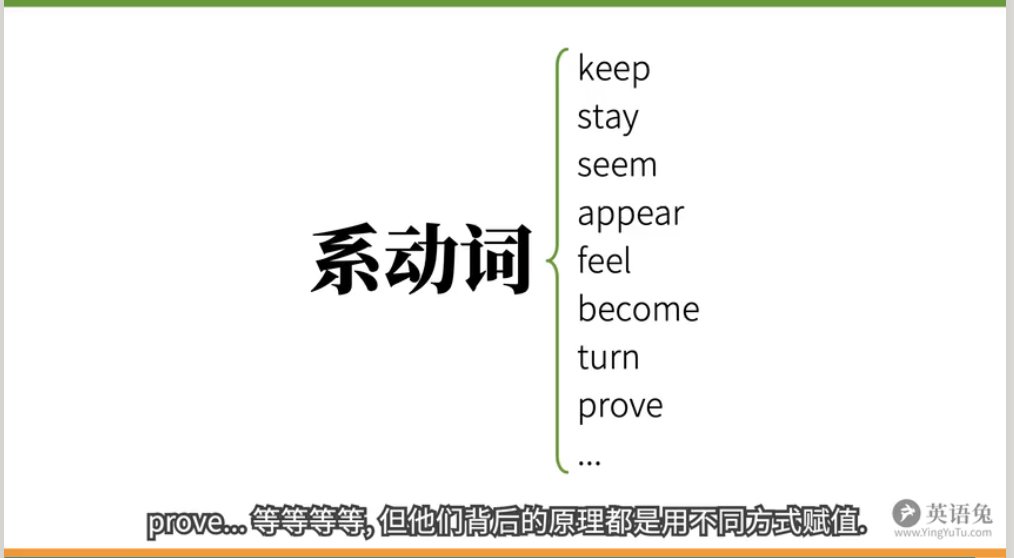
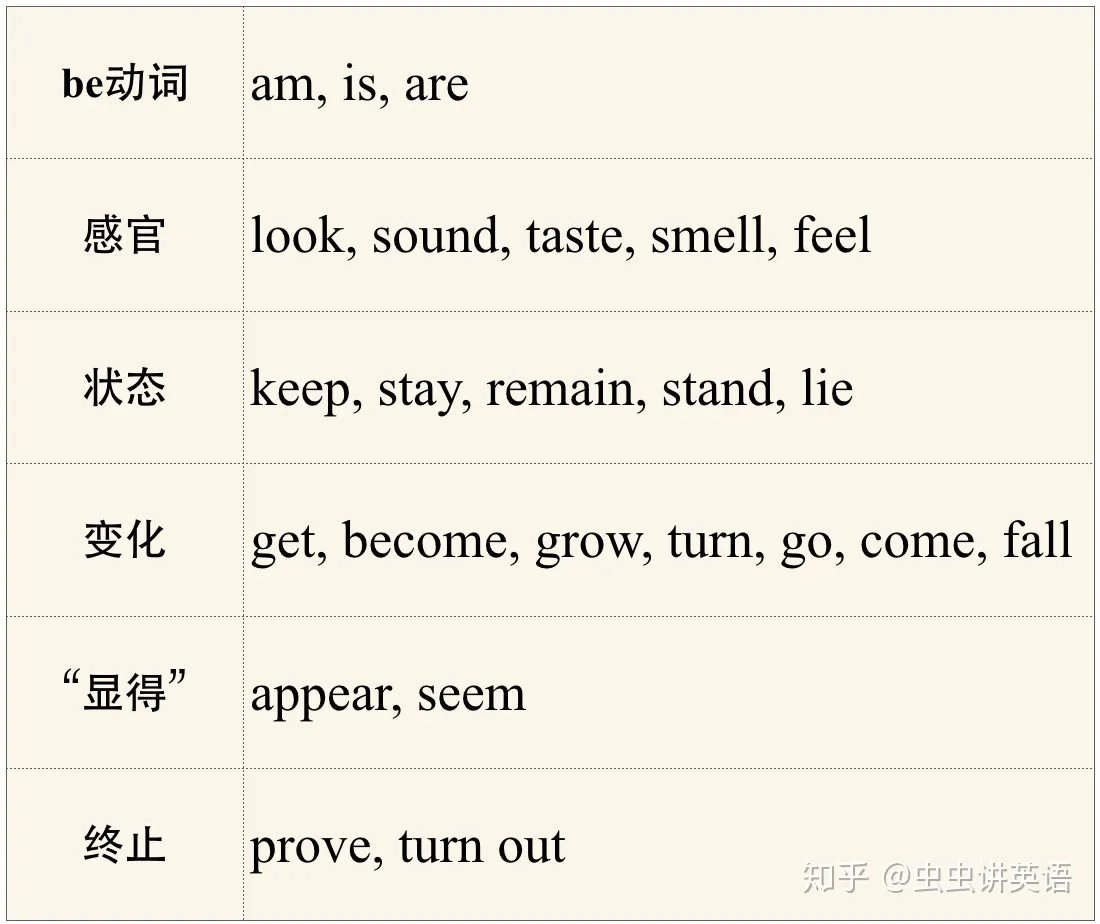
使役动词

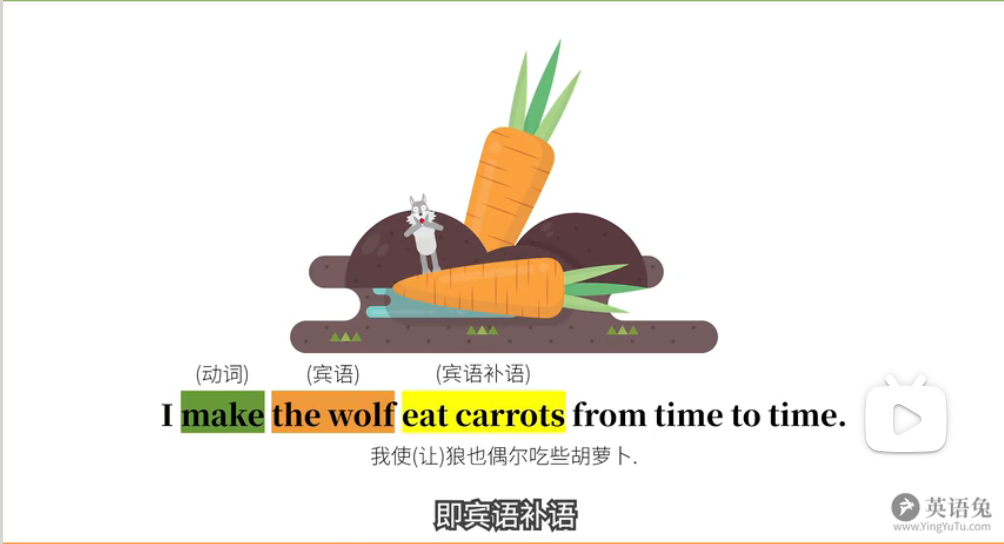

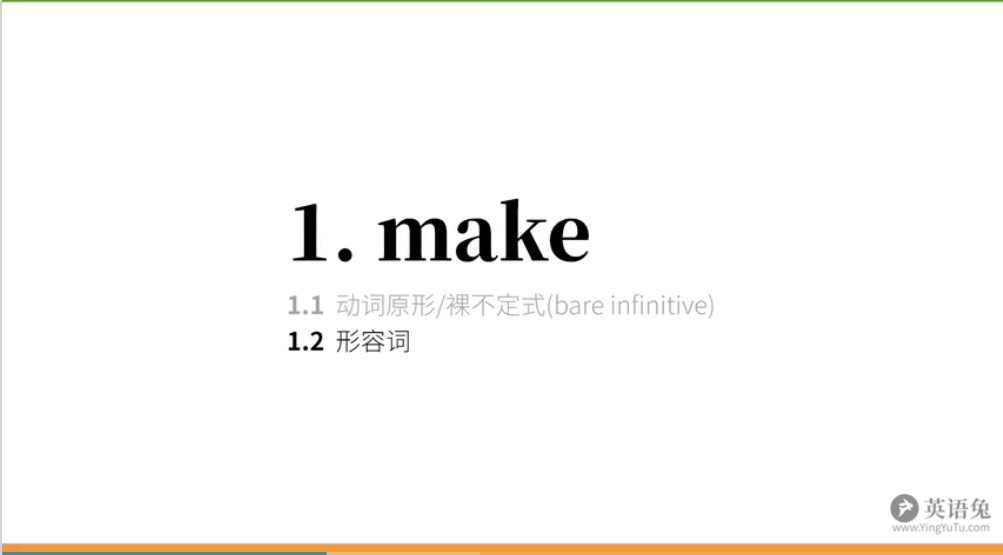
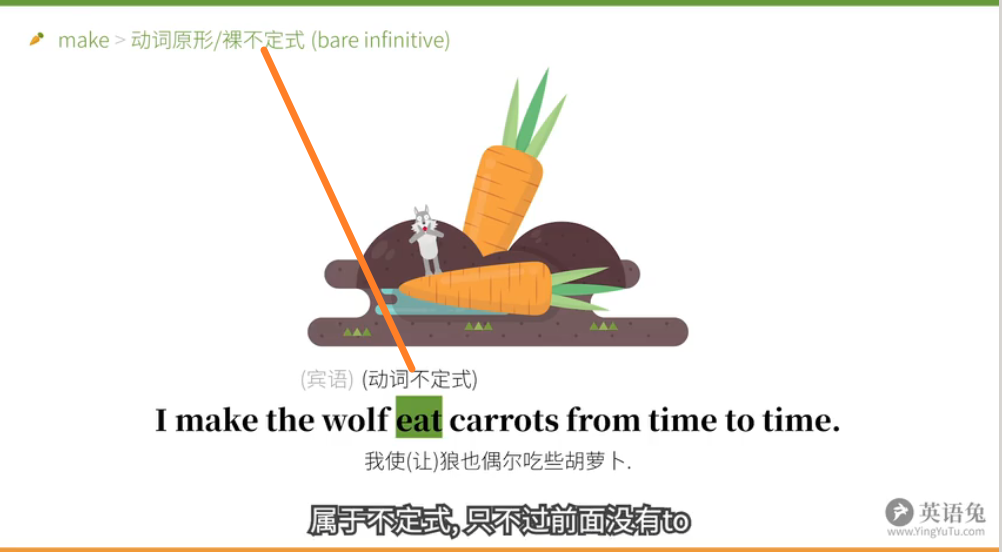
The carrot made the wolf full.
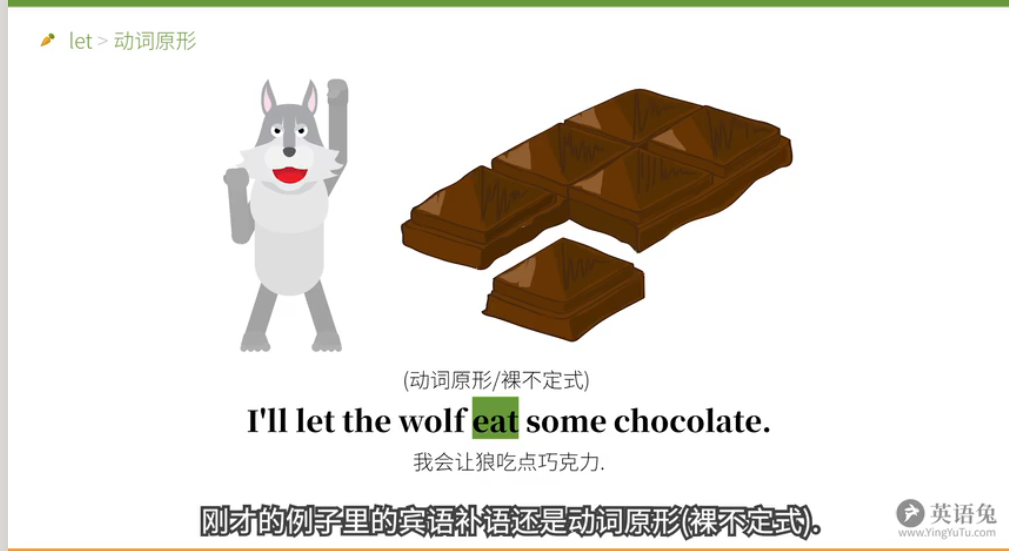
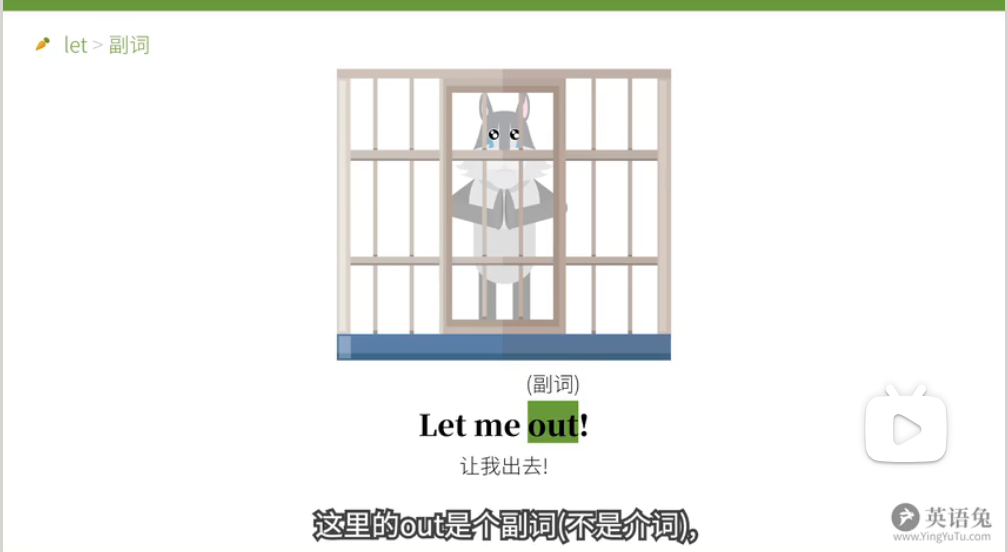


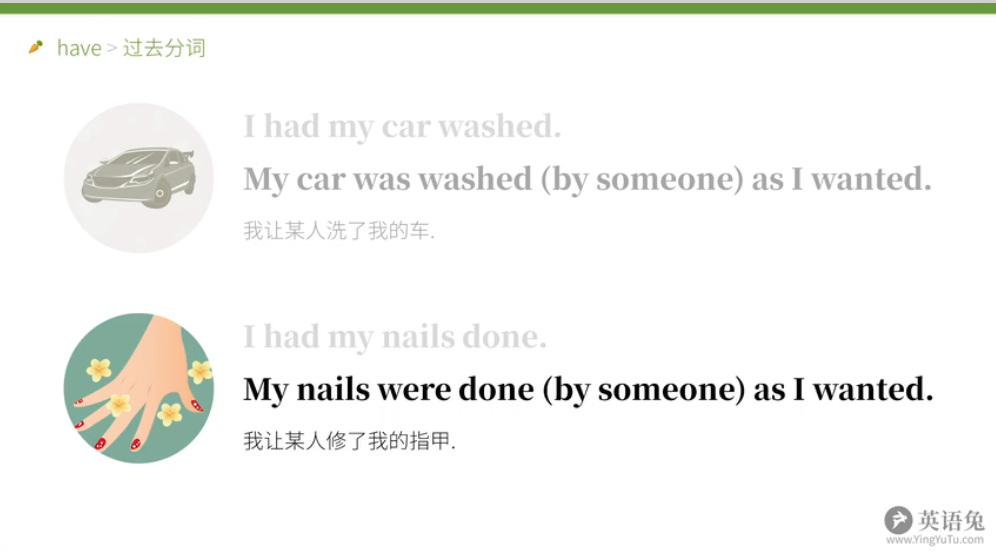

I had my carrots stolen yesterday.

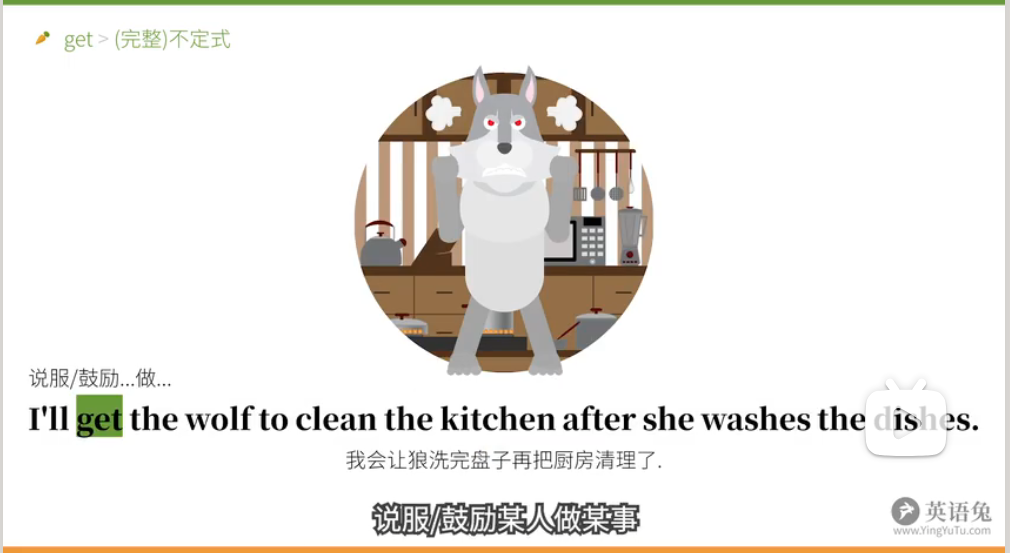
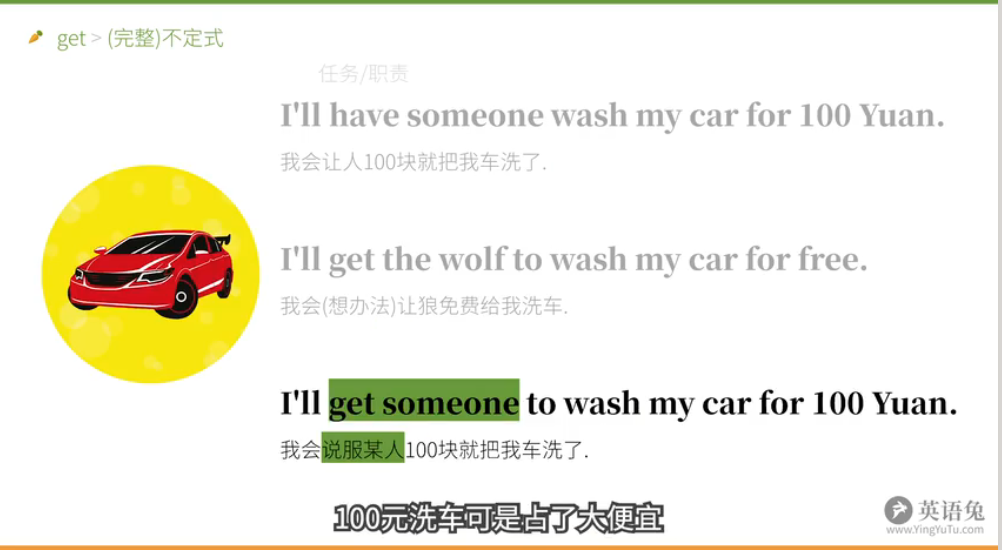

非谓语动词
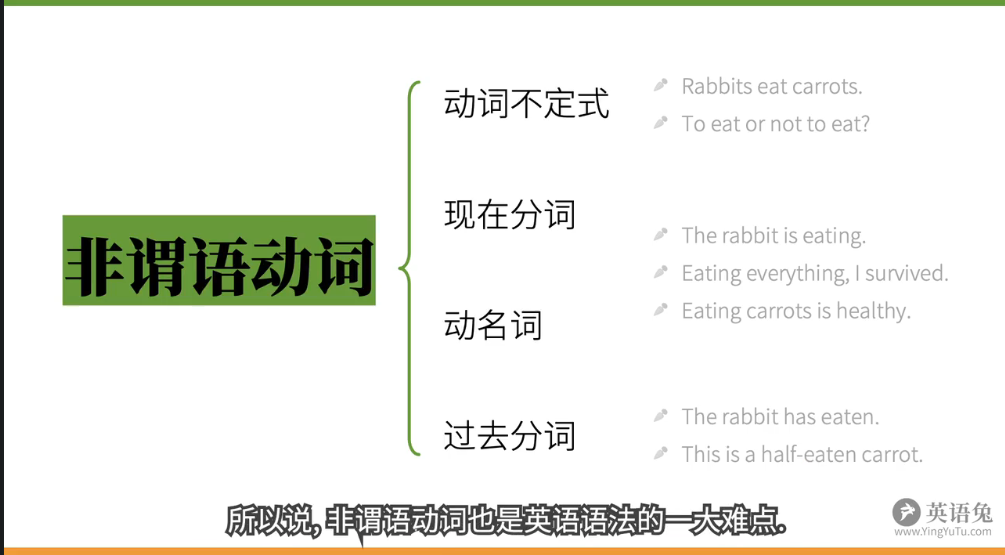
一个句子中只能有一个谓语动词,其他的动词要变为非谓语动词充当除谓语动词之外的句子成分。
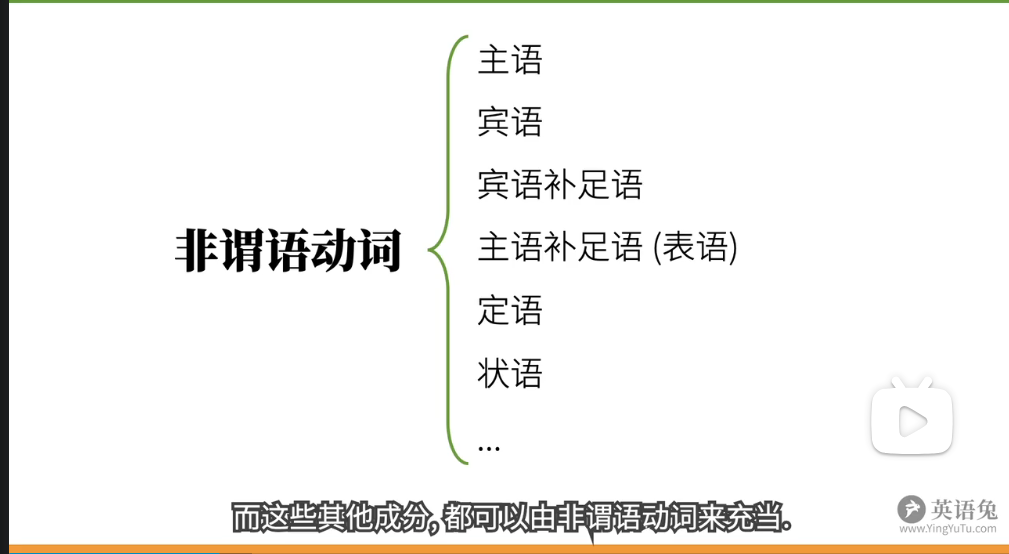
谓语动词也叫限定性动词(finite verbs),限定句子中的时间、状态和语气等。
非谓语动词也叫非限定性动词(non-finite verbs),失去了表达时间和人称的本领。
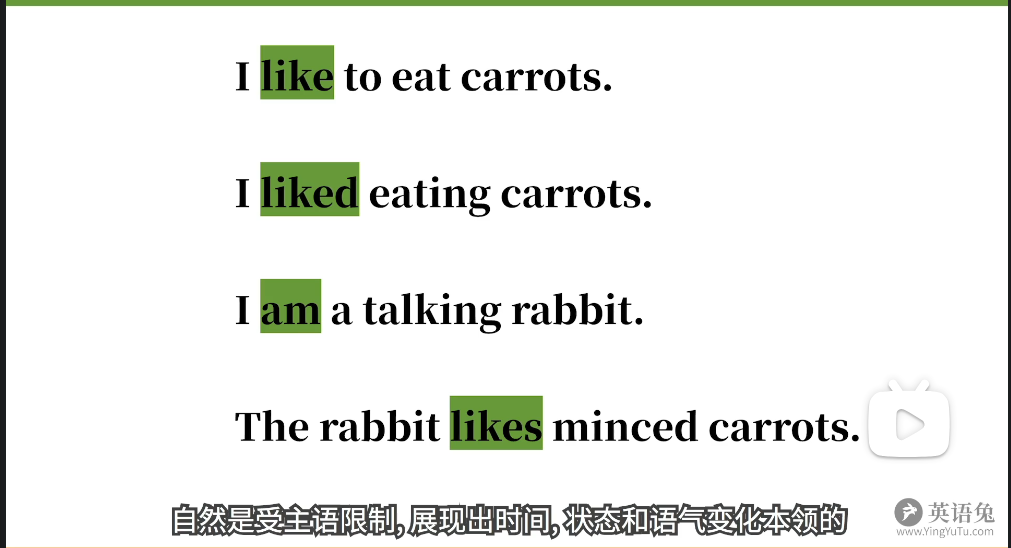
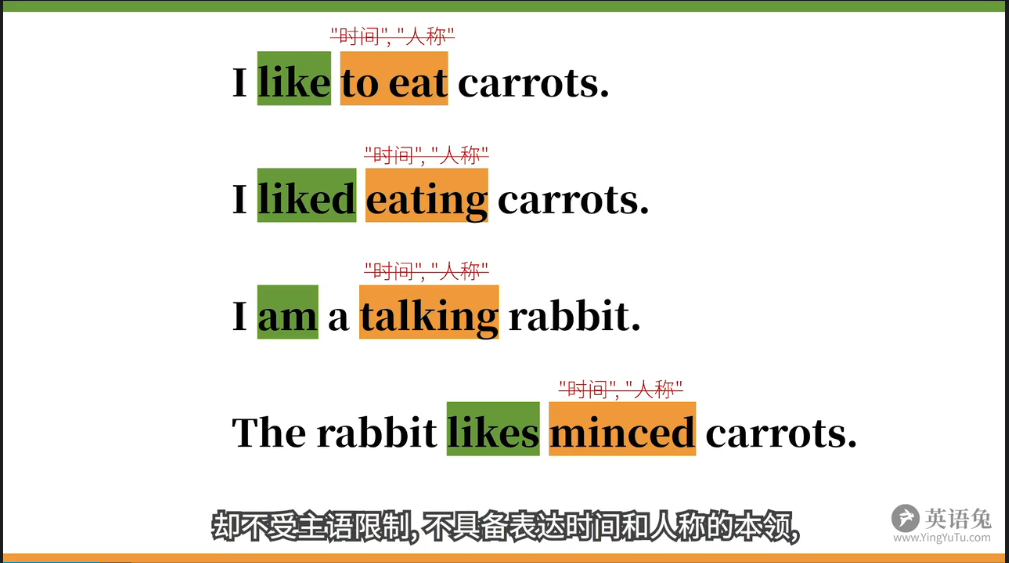
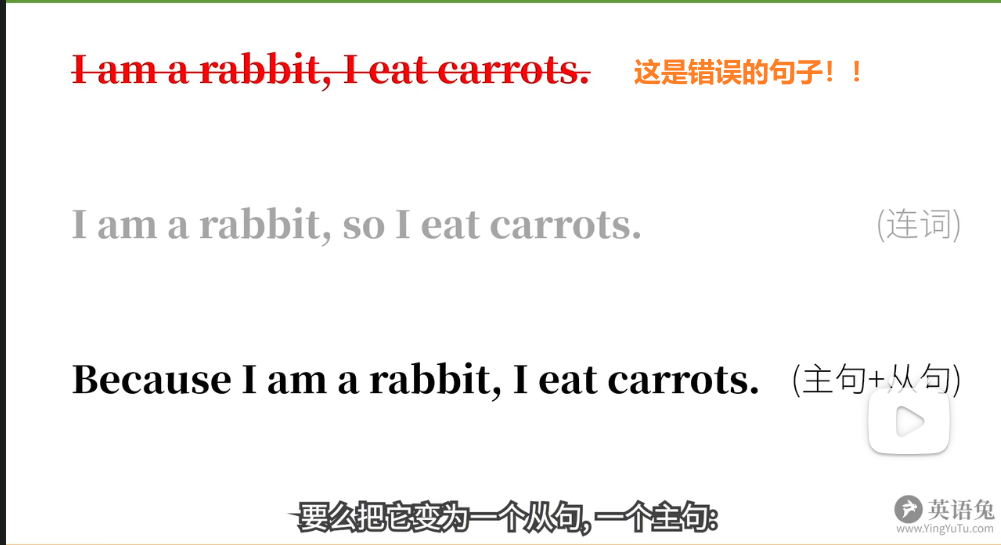
动词不定式infinitive
基本格式:to+动词原形
特性:不受时间、人称等概念的限制
例句:To be or not to be, that is a question.
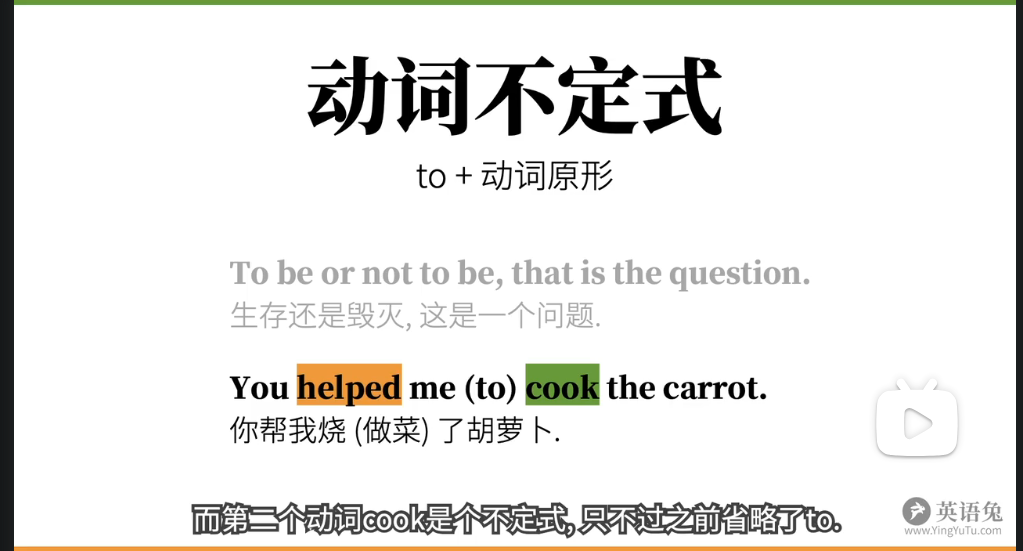
1.充当主语
To eat a carrot every day is good for the rabbit.
用it充当形式主语,能避免”头重脚轻“的问题,例如:It is good for the rabbit to eat a carrot every day.
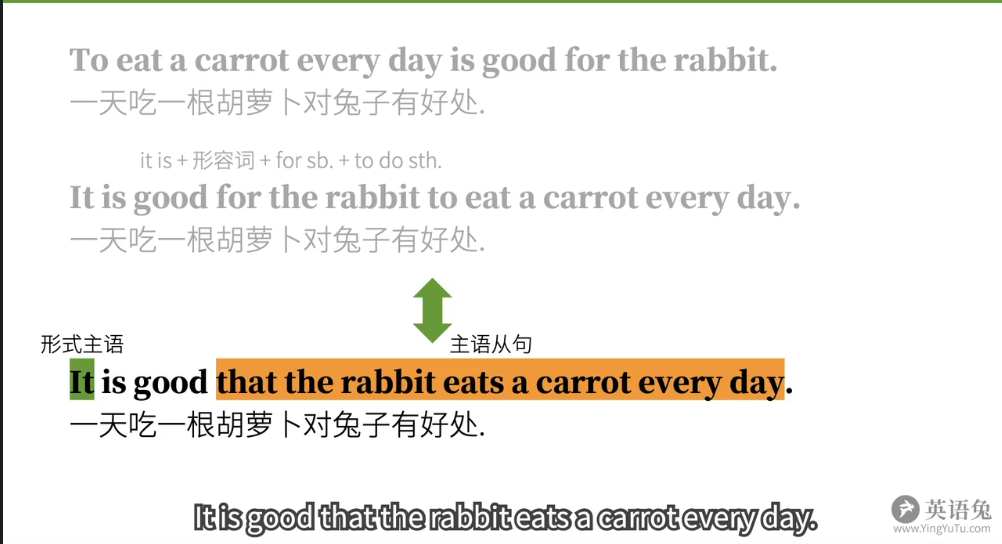
2.充当宾语
The rabbit likes to eat carrots.
3.充当宾语补足语
I consider it important to eat a carrot every day.

不定式可以和复杂及物动词一起使用,例如:The rabbit expects the wolf to eat a carrot.
这里的to eat a carrot是补充说明wolf的行为。
有些谓语动词如see、watch、find以及have、let、make等使役动词,后面用不定式作宾补时需要省略to。这些内容和bare infinitive相关。
Carrots make the rabbit feel happy.
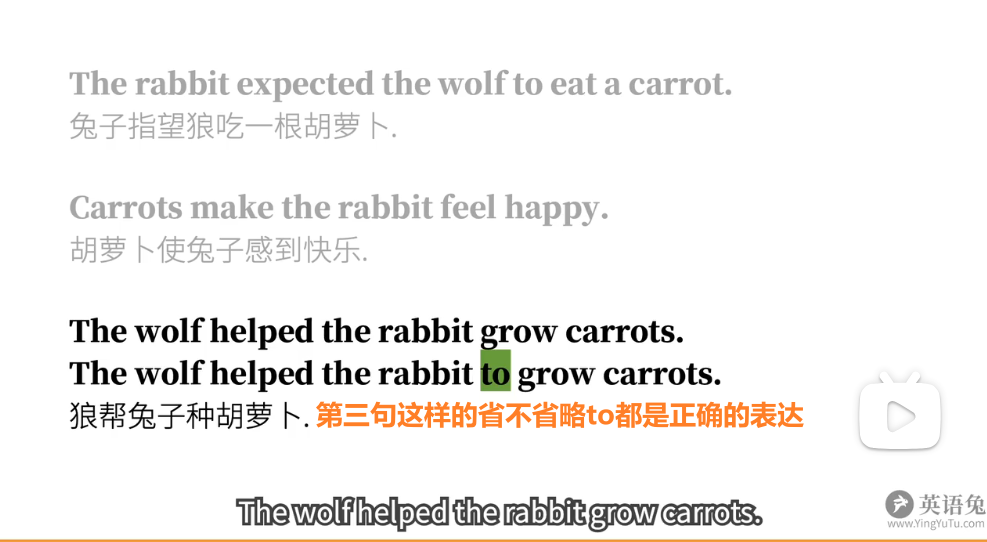
4.充当表语
The rabbit's dream is to eat every kind of carrot in the world. 这句话等价于To eat every kind of carrot is the rabbit's dream.
5.充当定语
The rabbit has a lot of carrots to eat.
6.充当状语
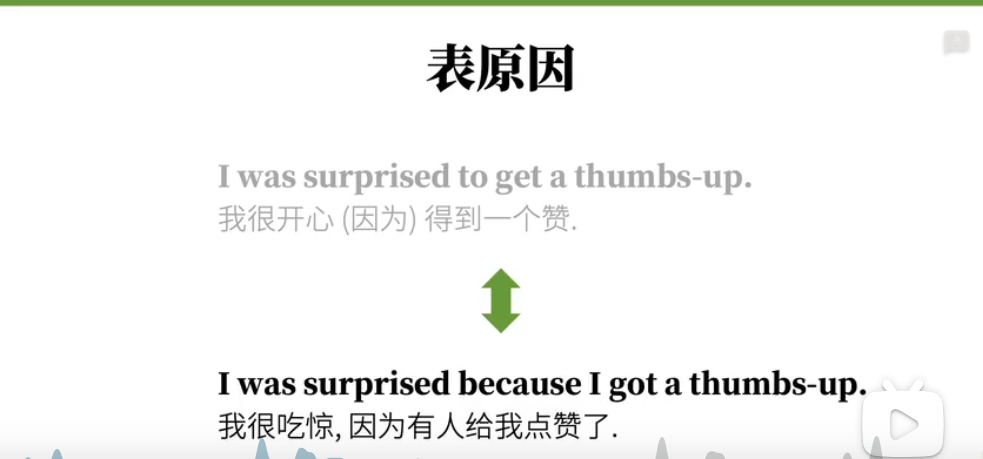
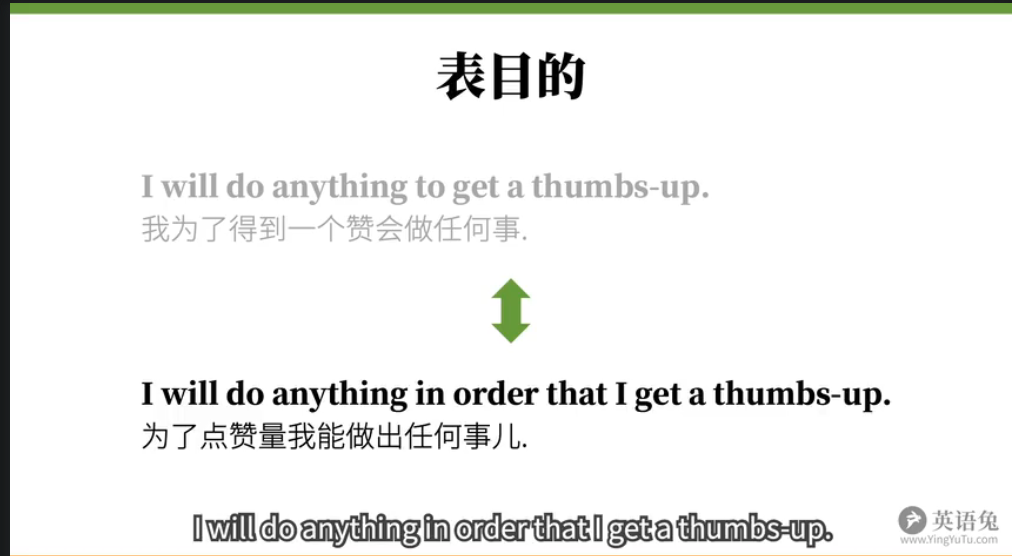

高级不定式
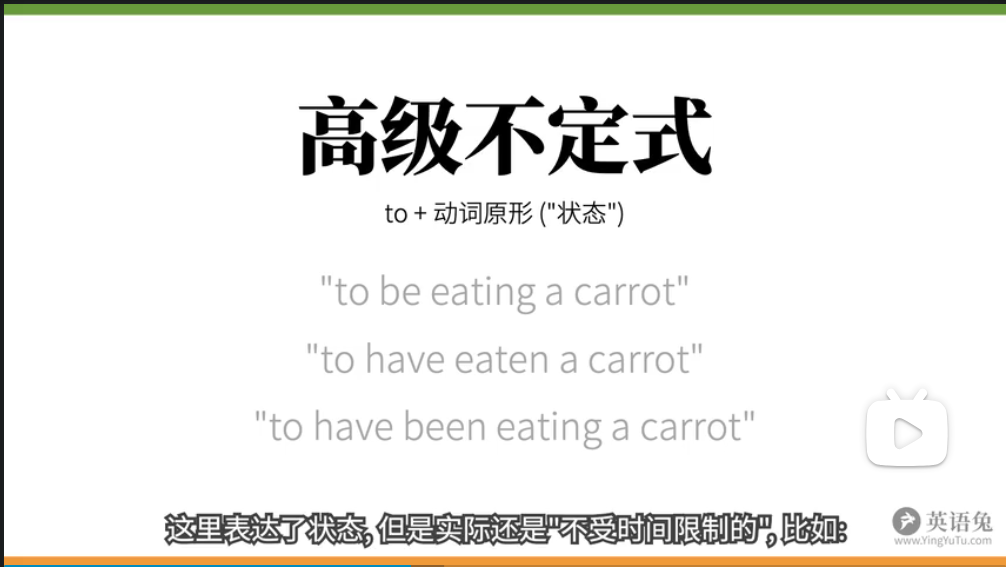
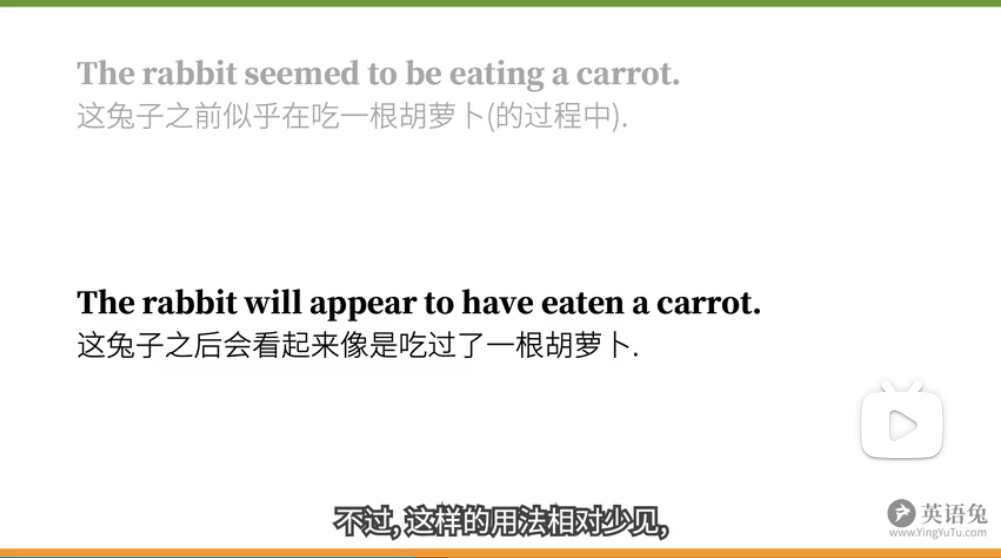
动名词
1.充当主语
Eating carrots is healthy for the rabbit.
2.充当表语
The rabbit's hobby is growing carrots.
Seeing is believing. 眼见为实,主语和表语都是动名词。
3.充当定语
a sleeping pill = a pill for sleeping
4.充当宾语
The rabbit likes to eat carrots.
The rabbit likes eating carrots.
这两句话很像啊,不过总的来说,动名词充当宾语和不定式充当宾语有明显差异。
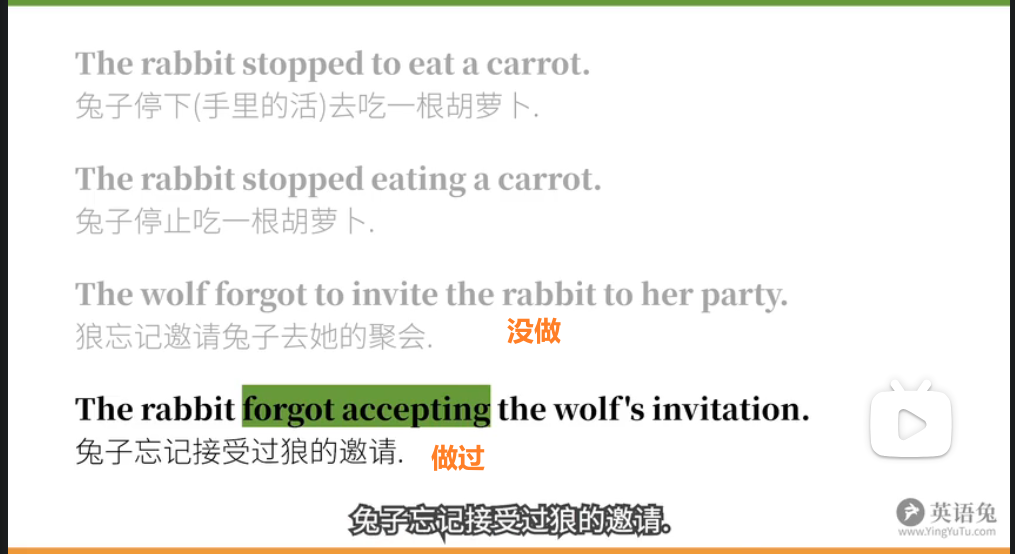
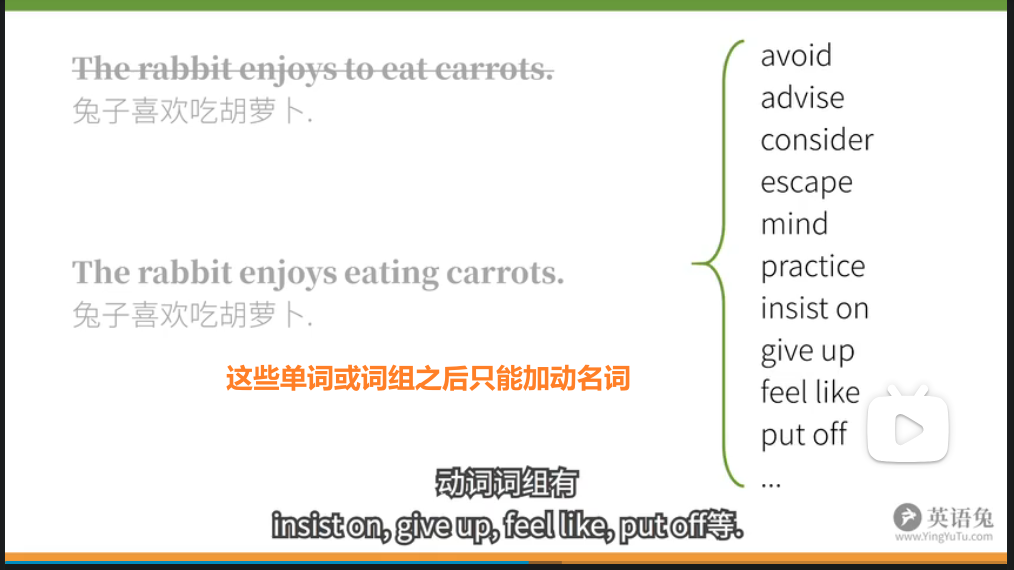
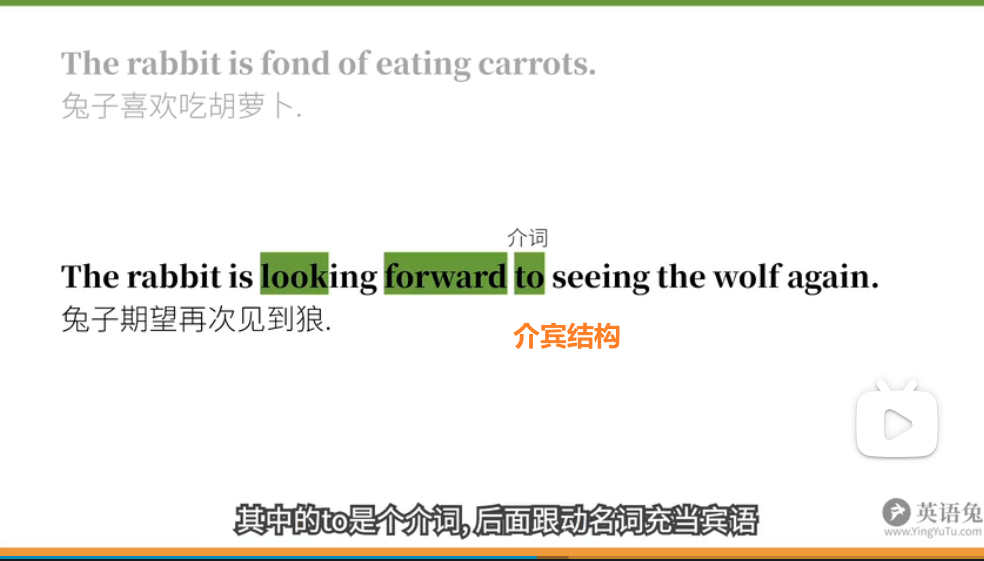
现在分词
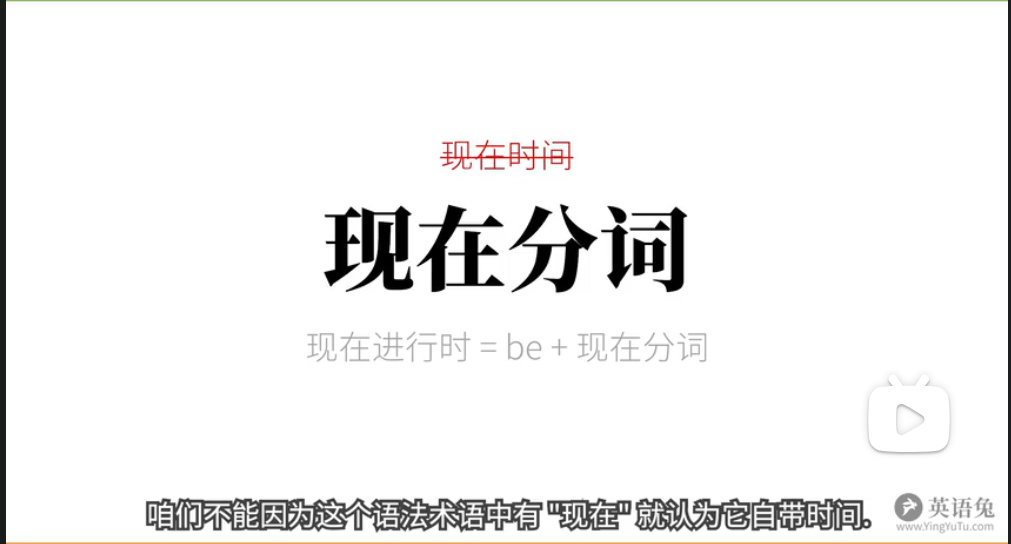
原因:非谓语动词是没有时间变化的。
1.充当定语
a talking rabbit中talking是一个充当定语的形容词,不是强调正在说话。

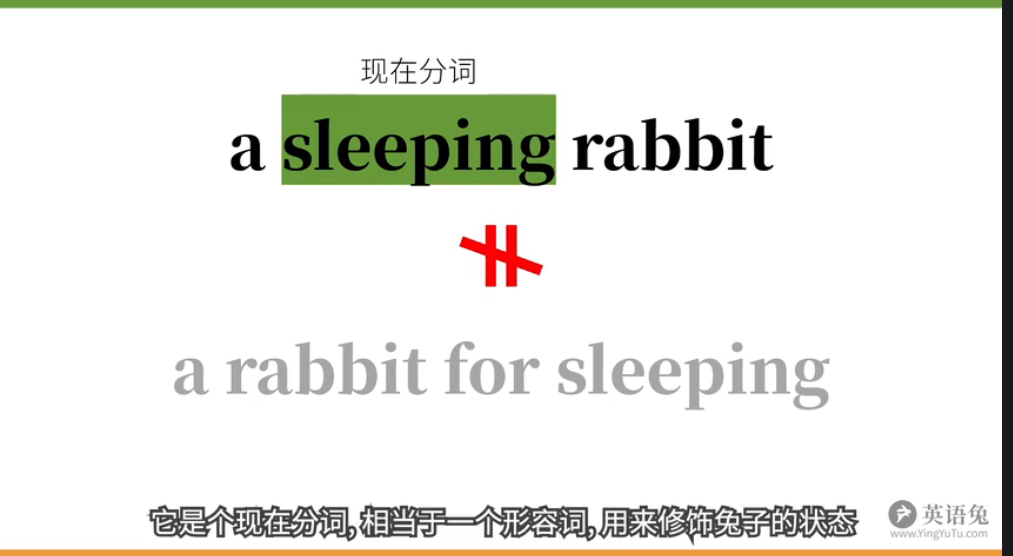
2.充当表语
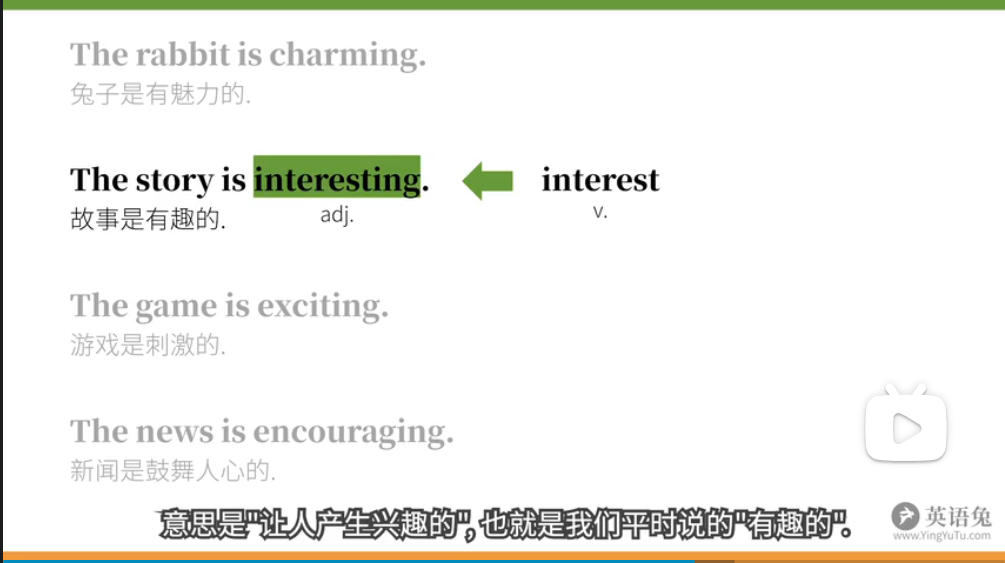
3.充当宾语补足语
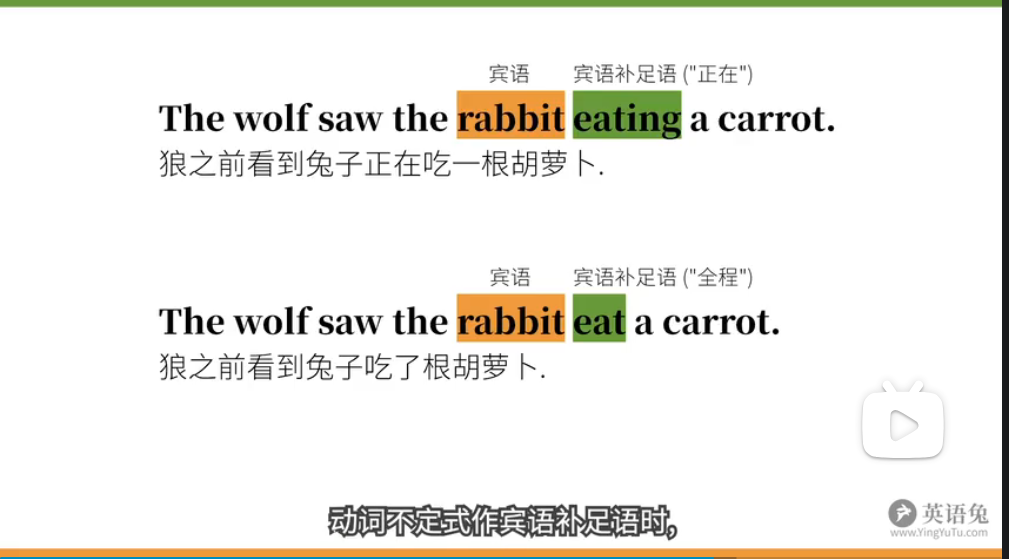
4.充当状语

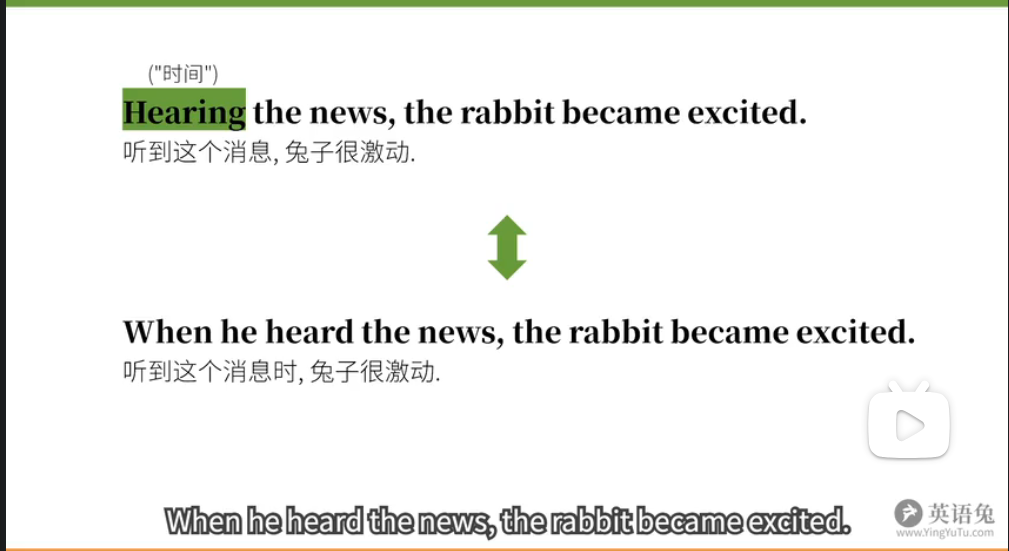
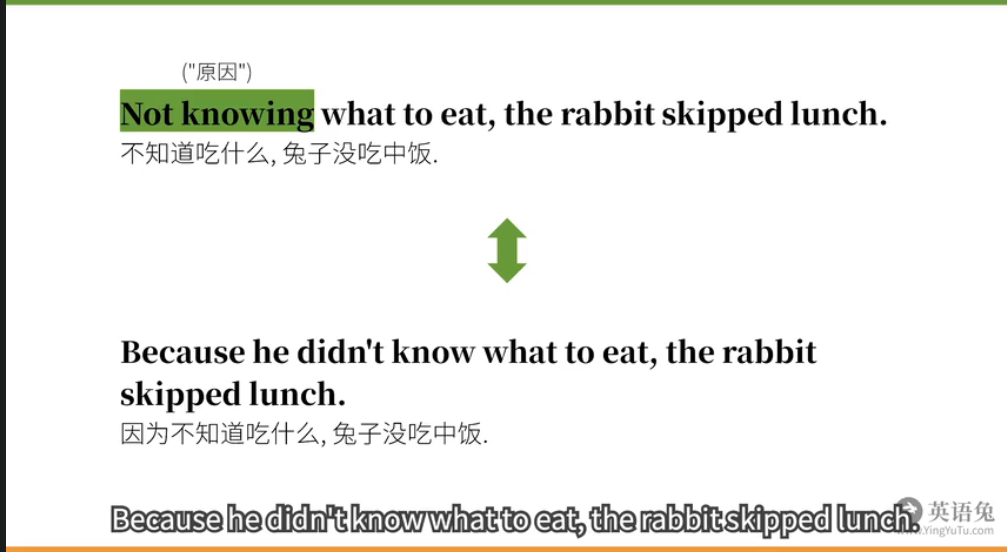
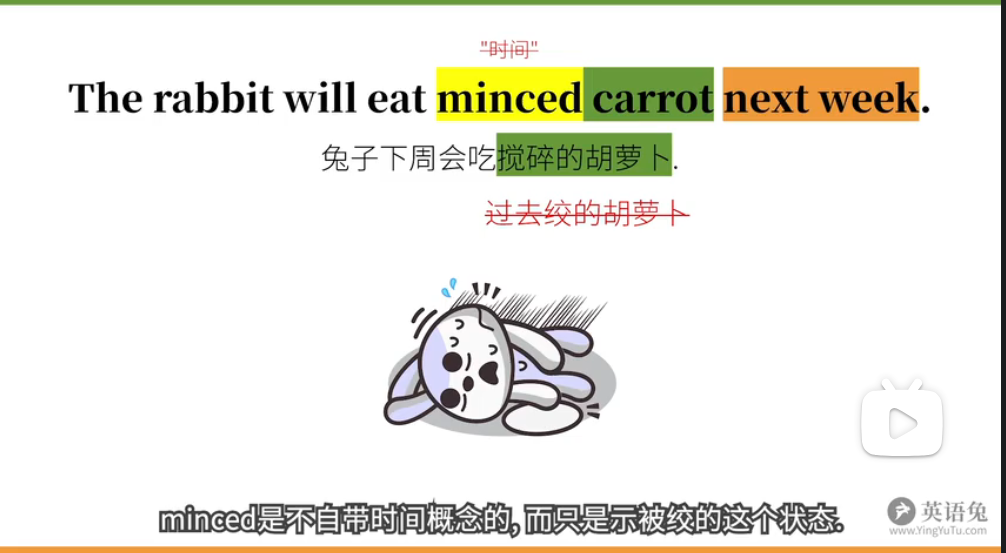
过去分词
1.充当定语

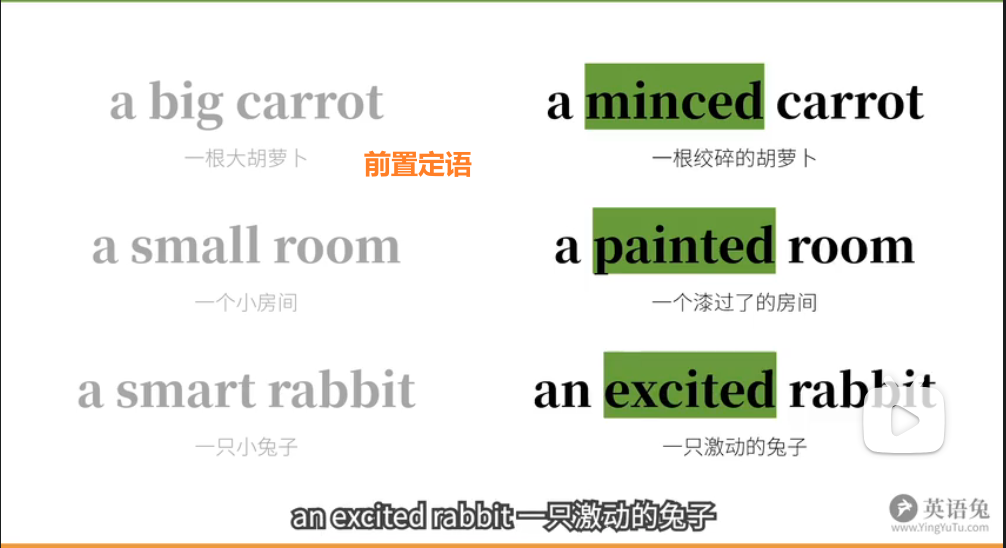
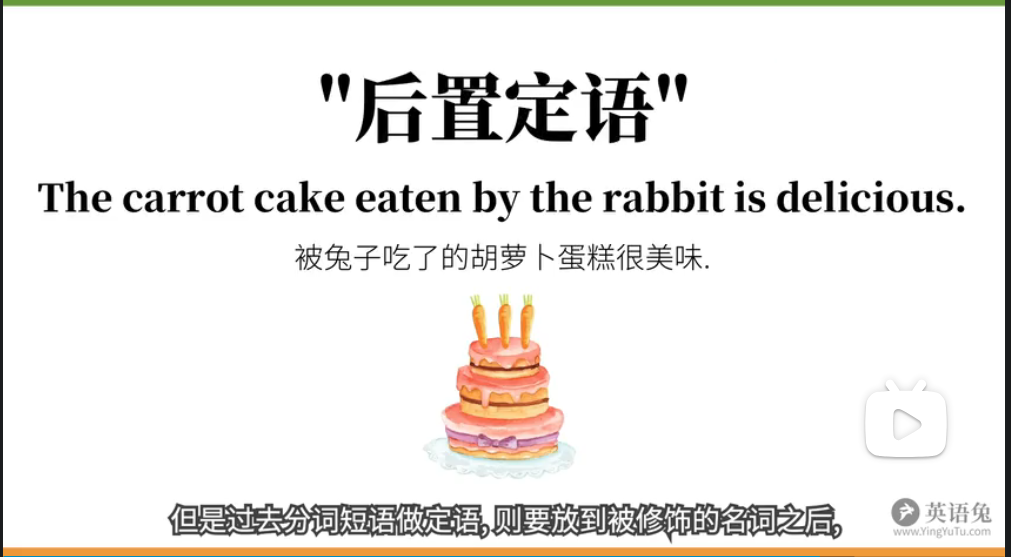
2.充当表语
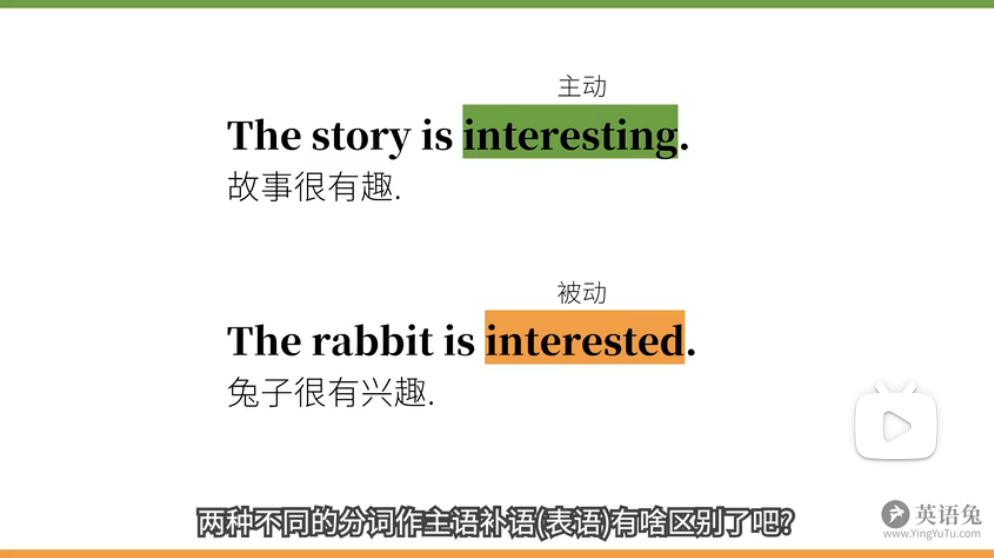
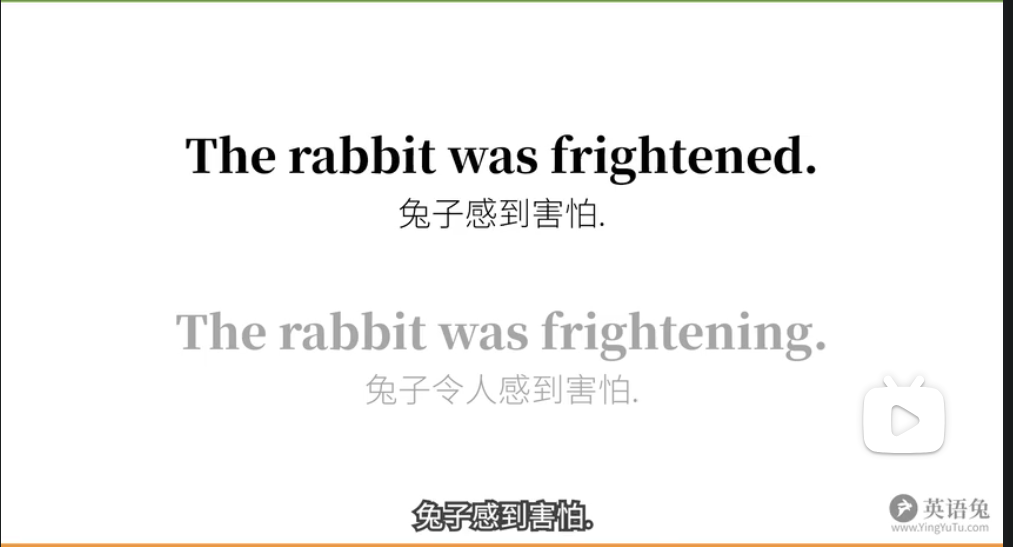
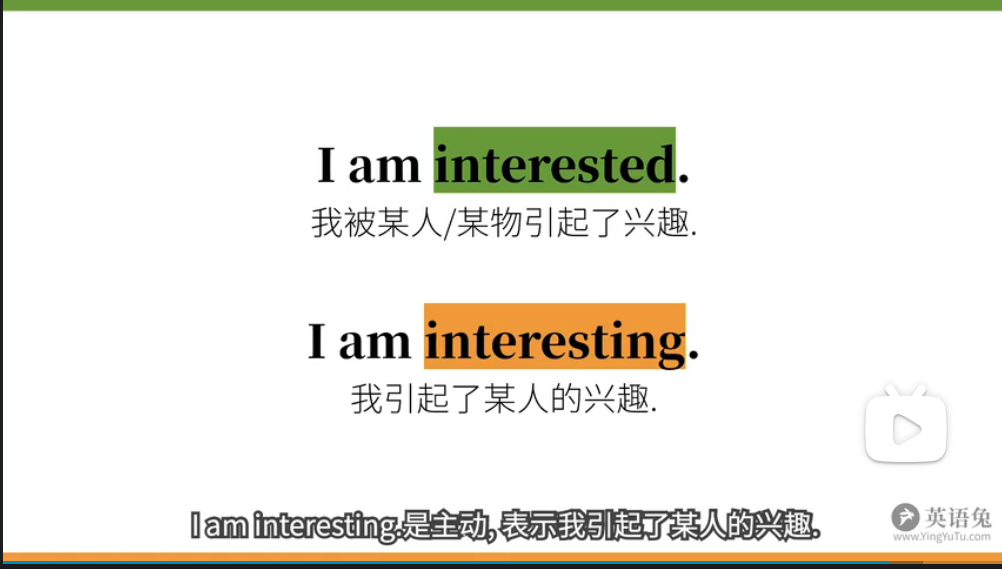
3.充当宾语补语
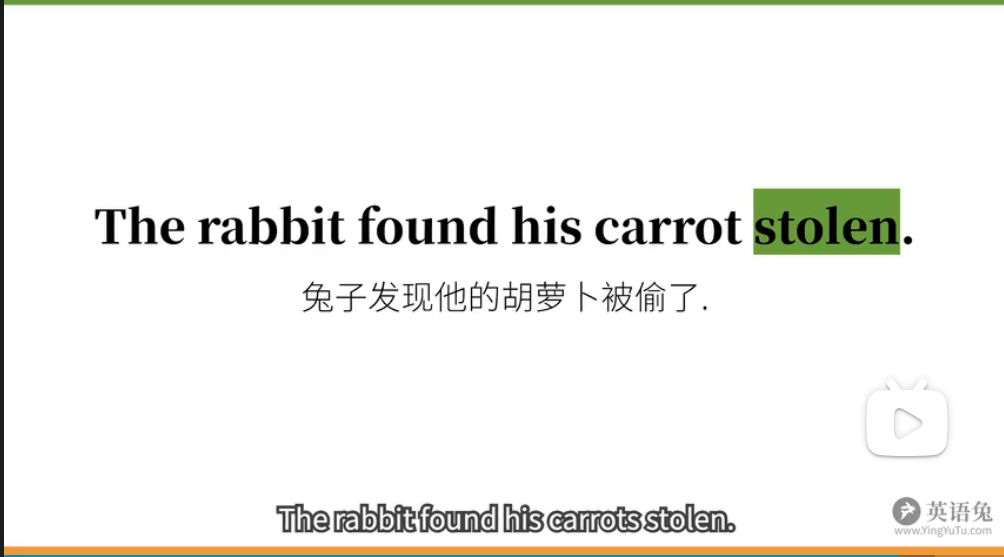
4.充当状语
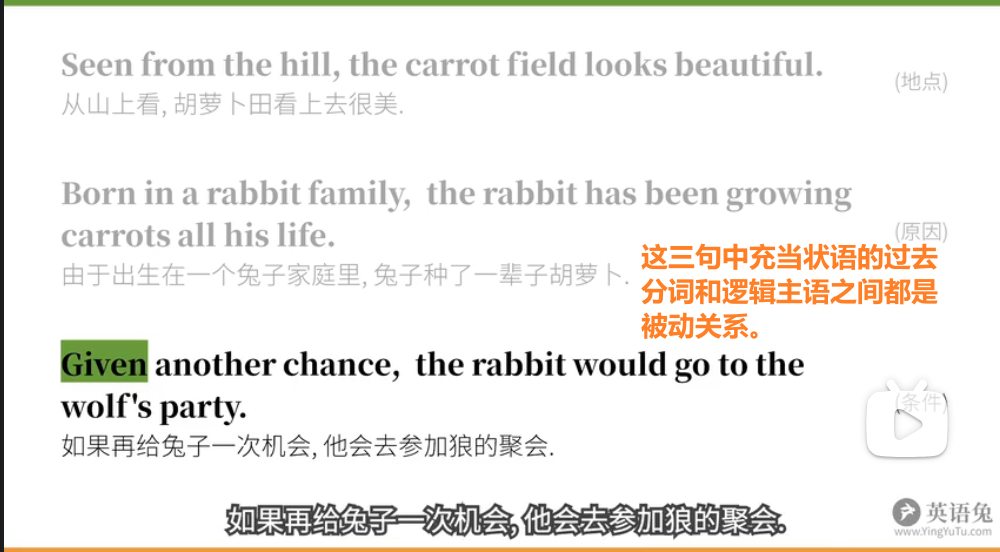
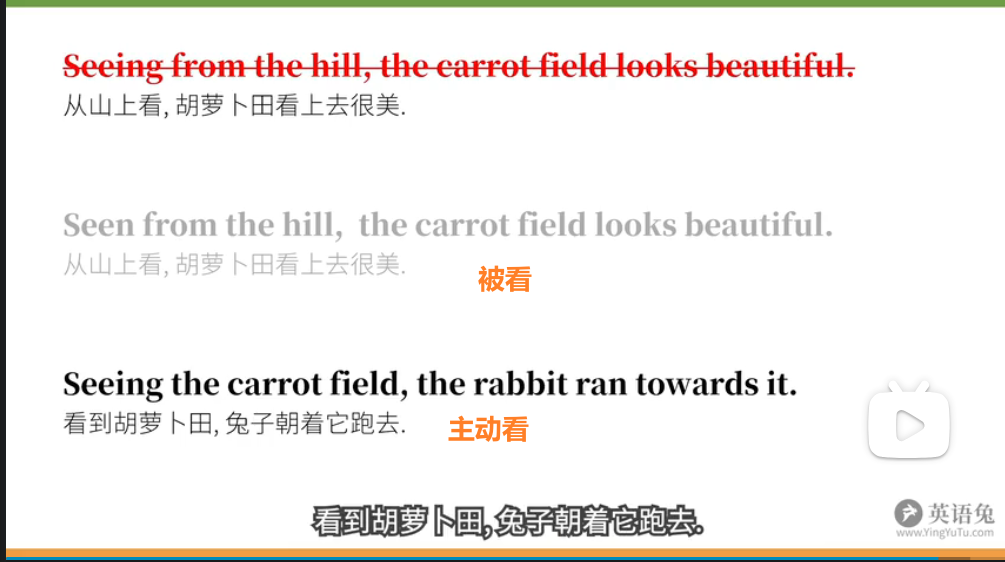
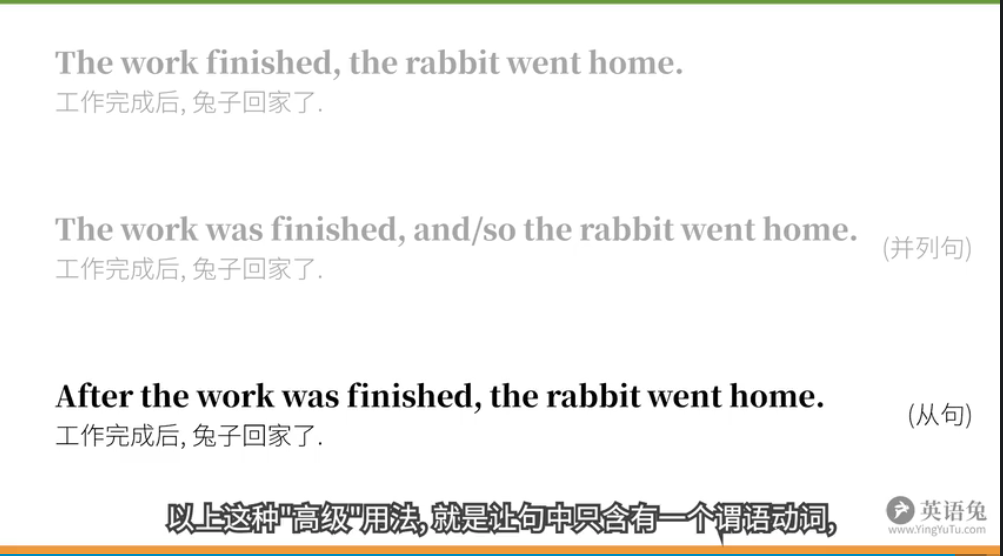
finished修饰the work
